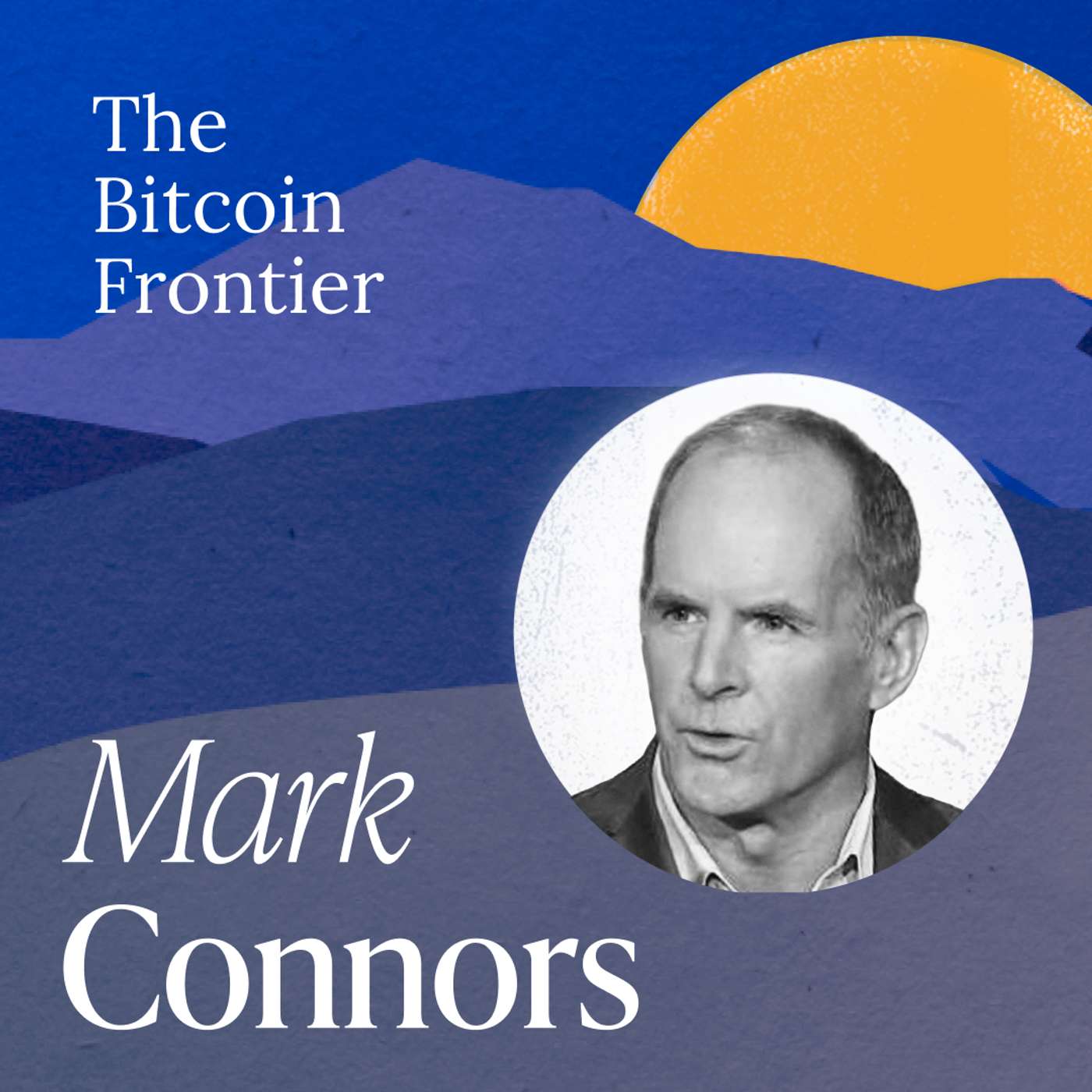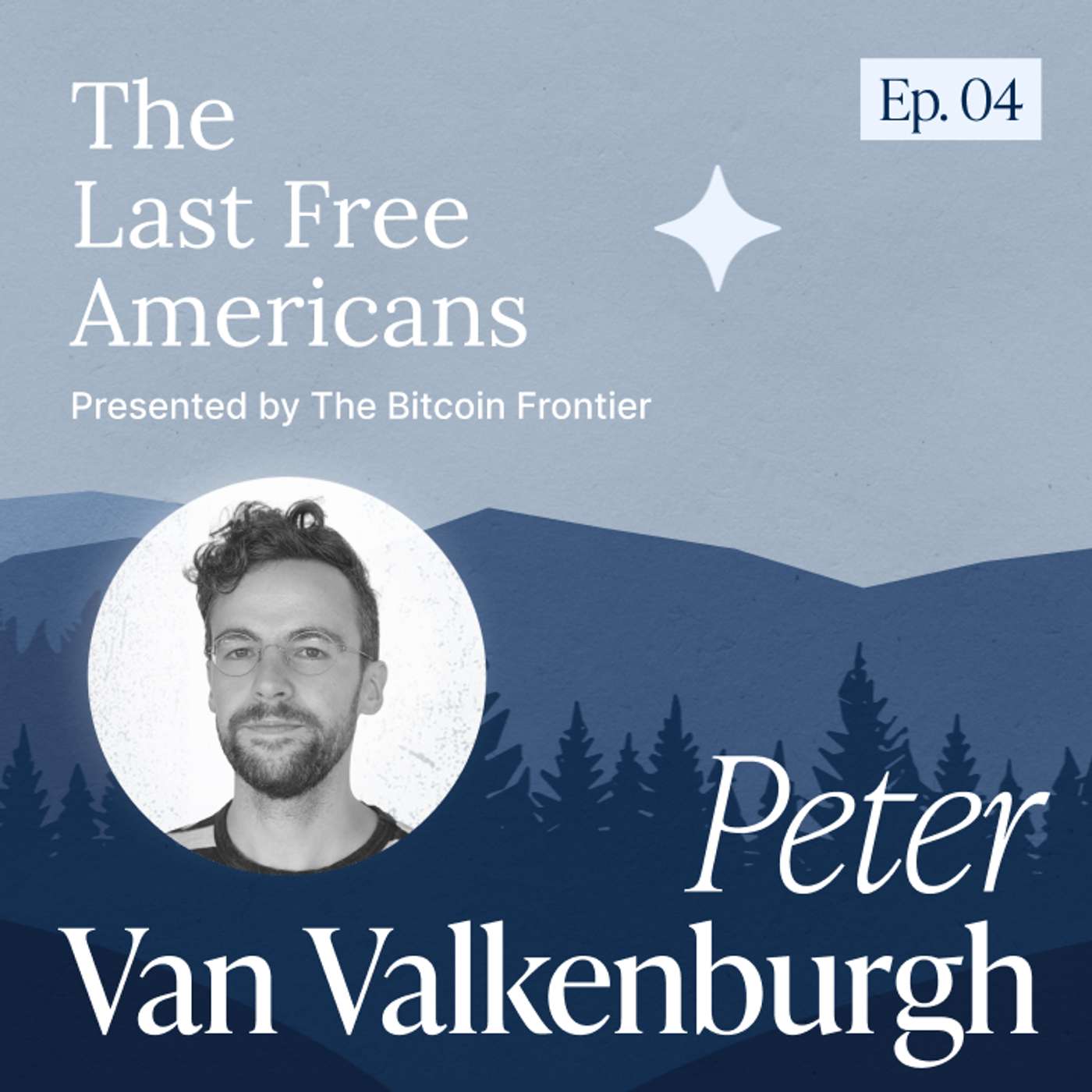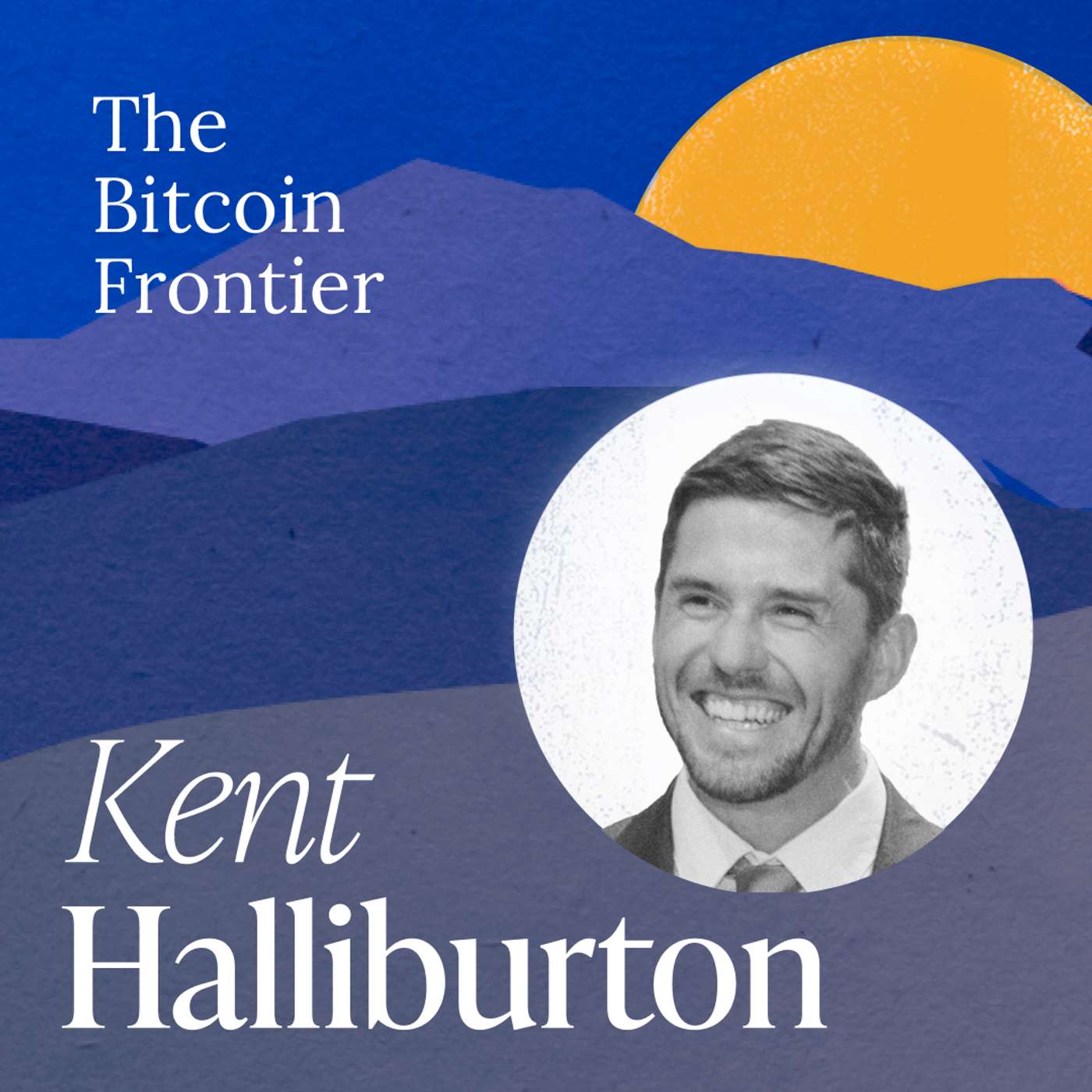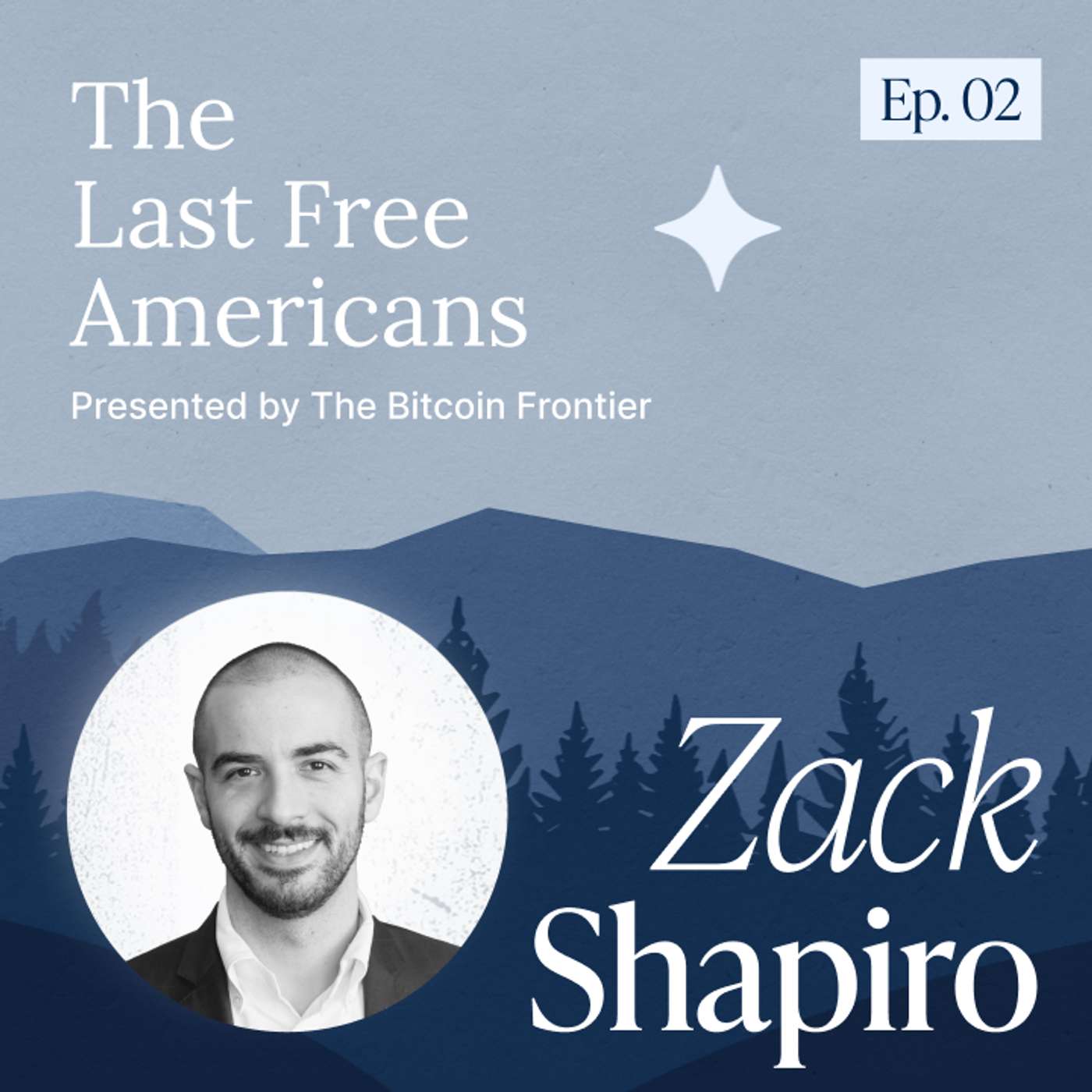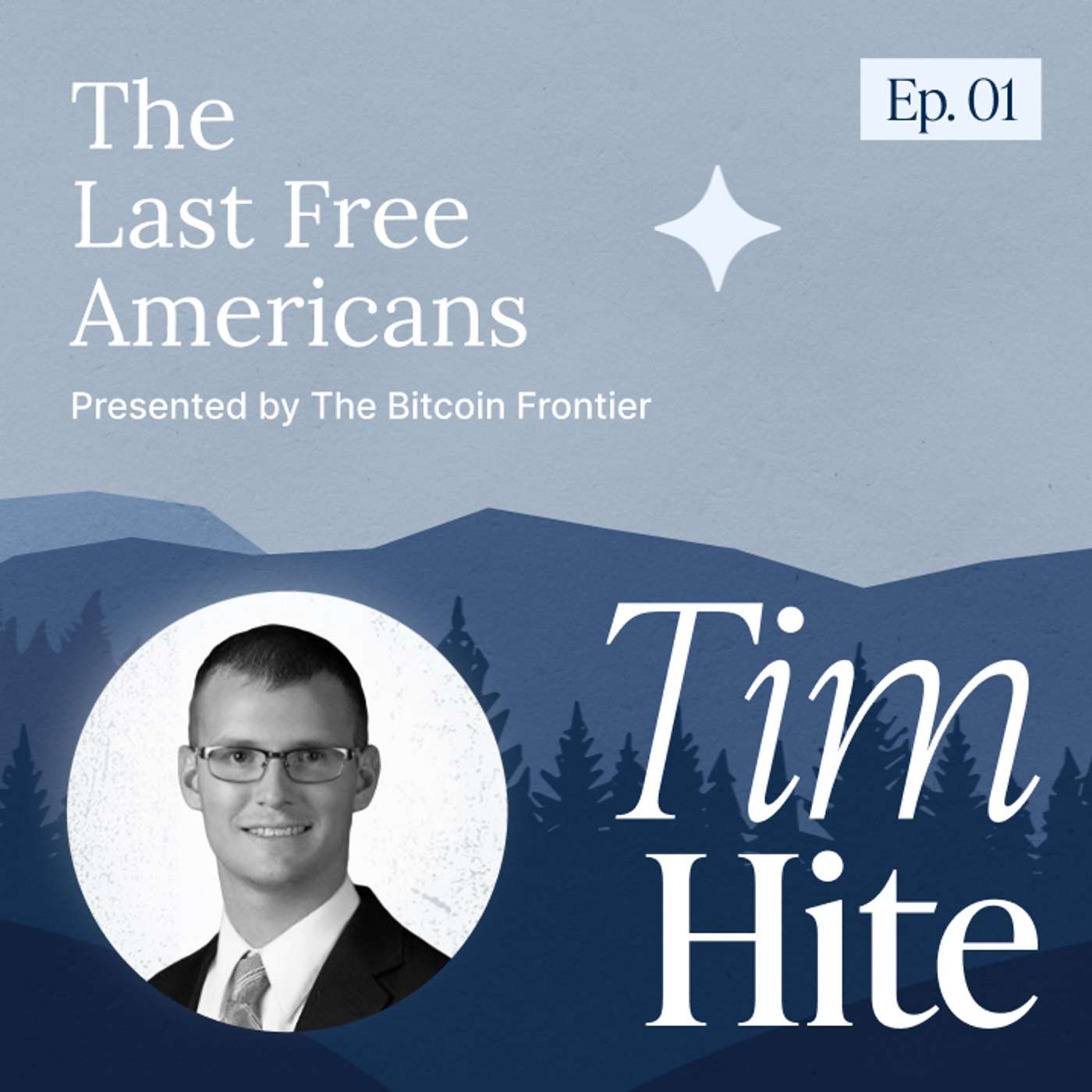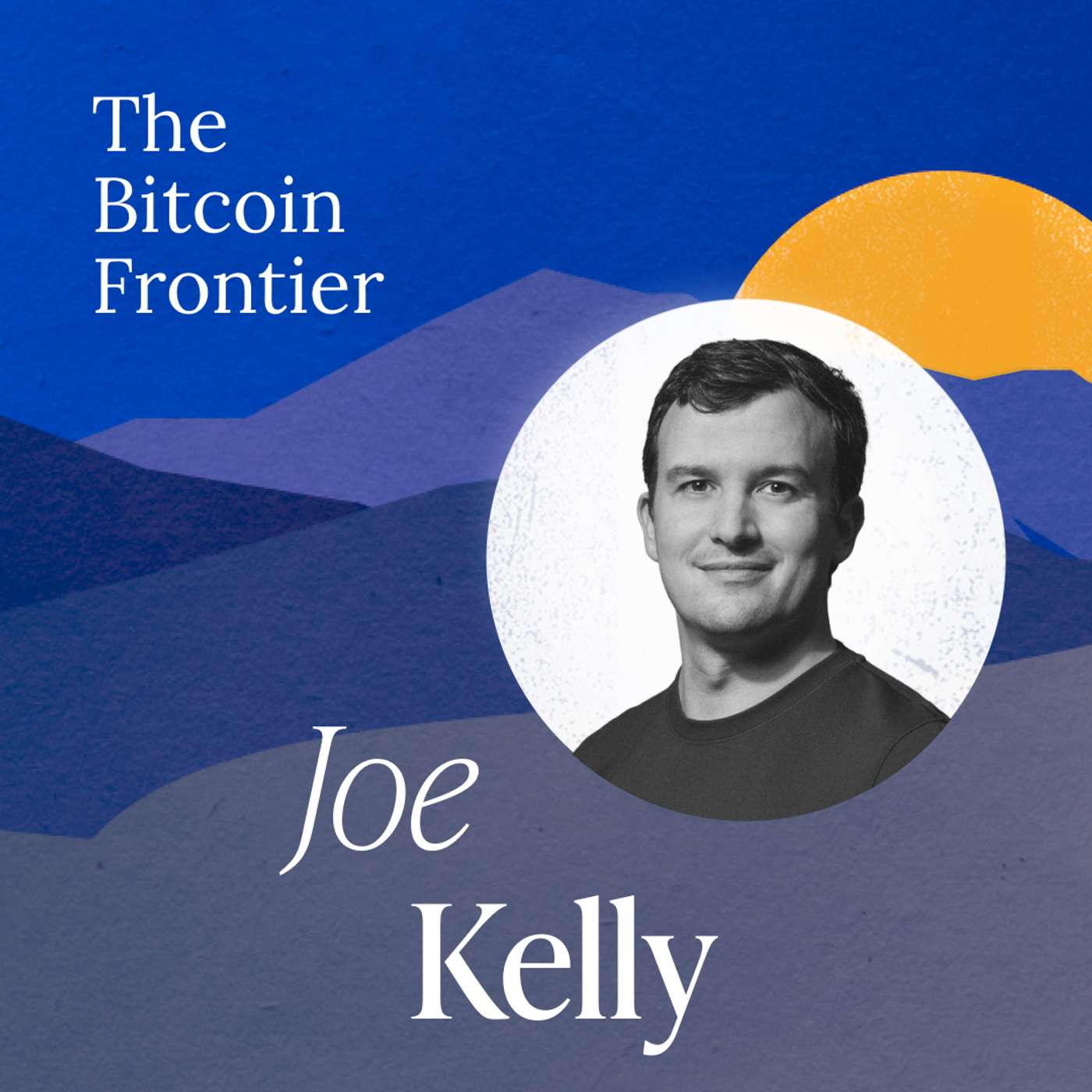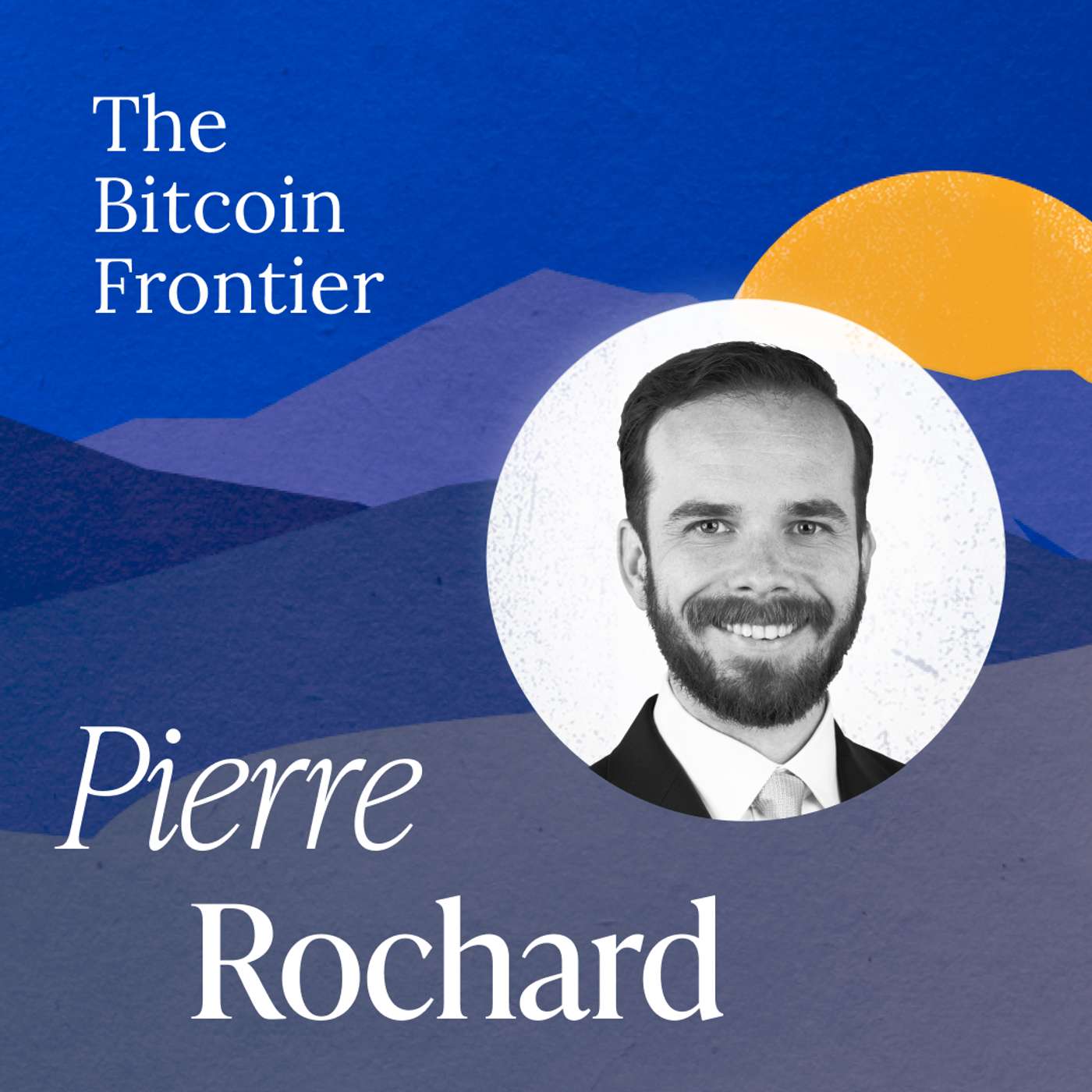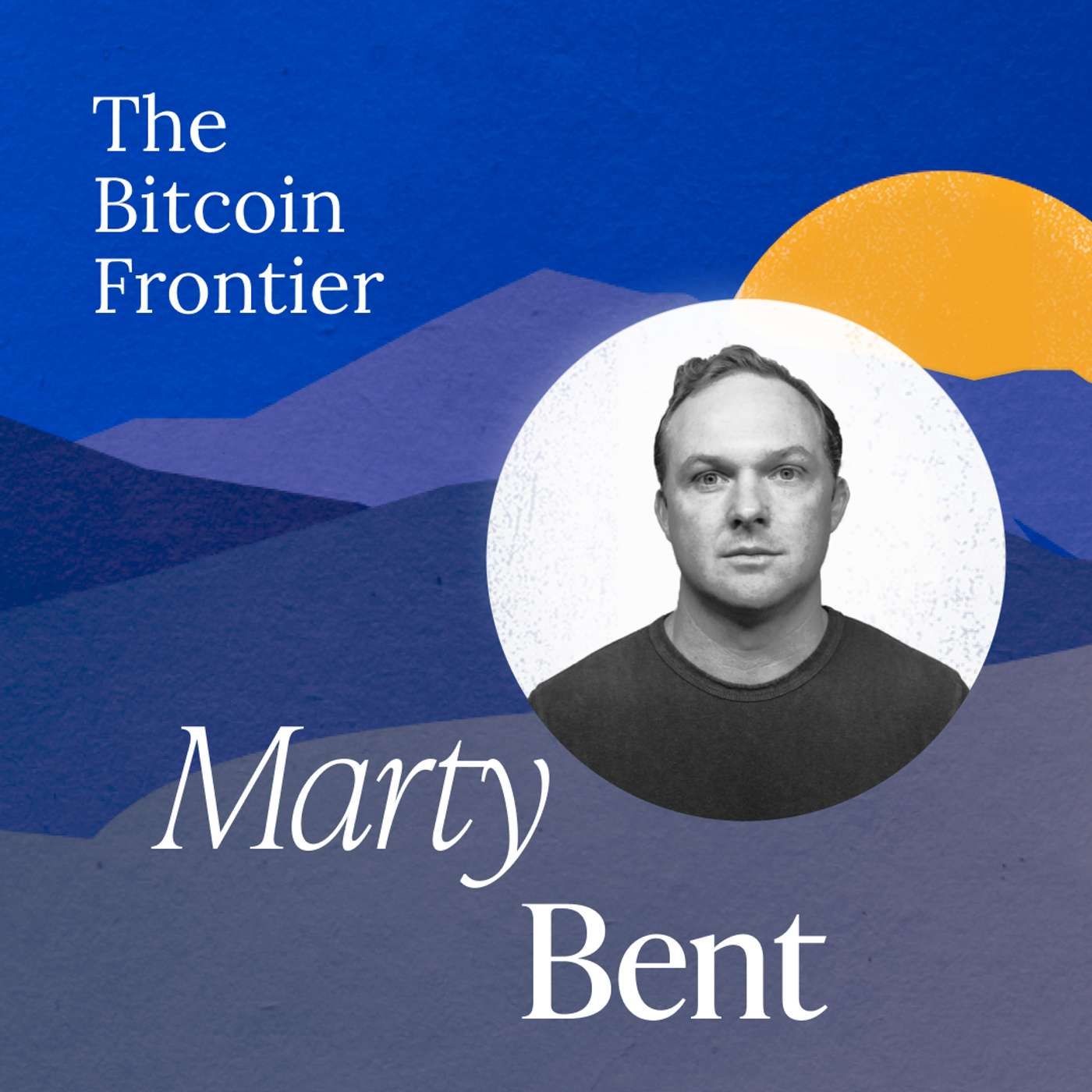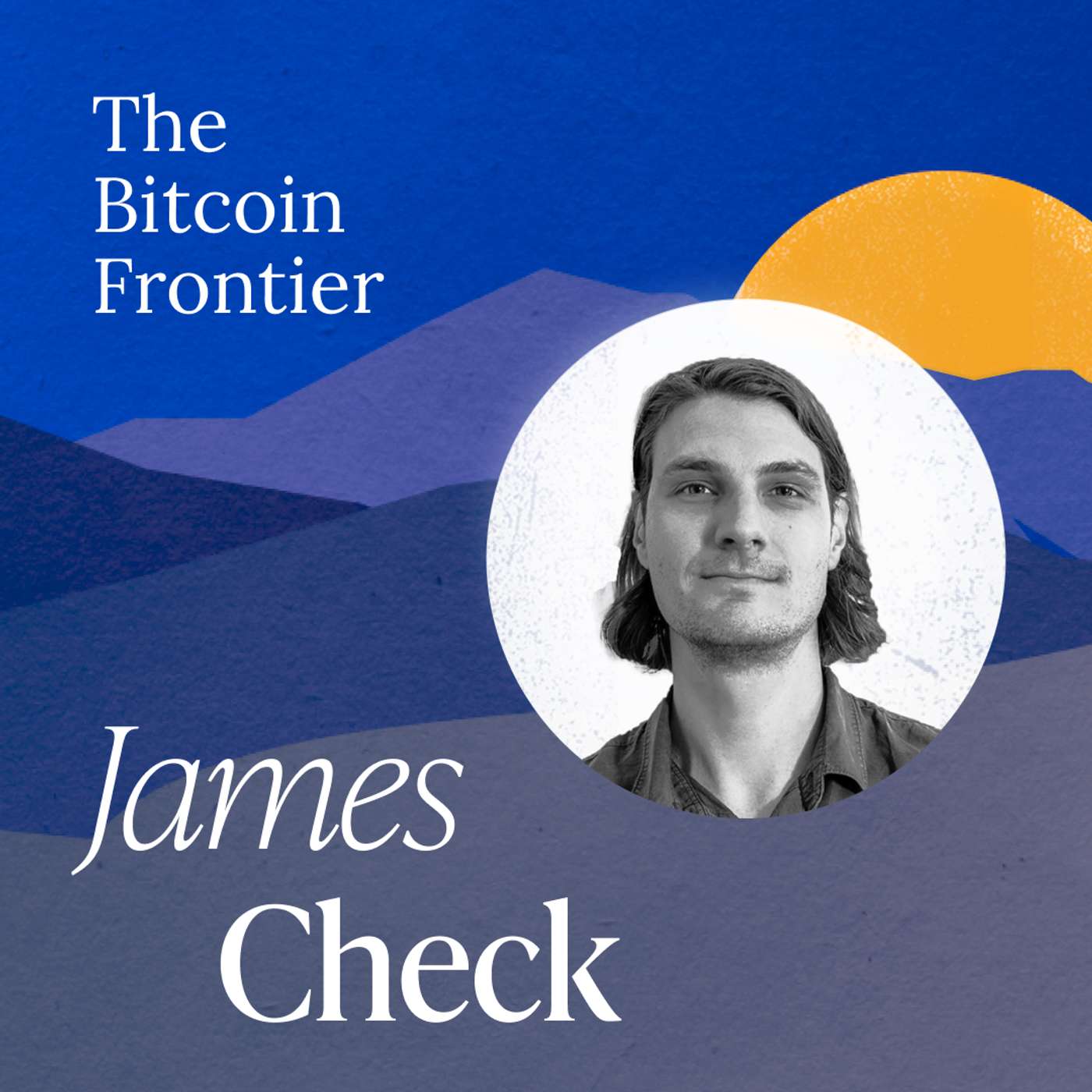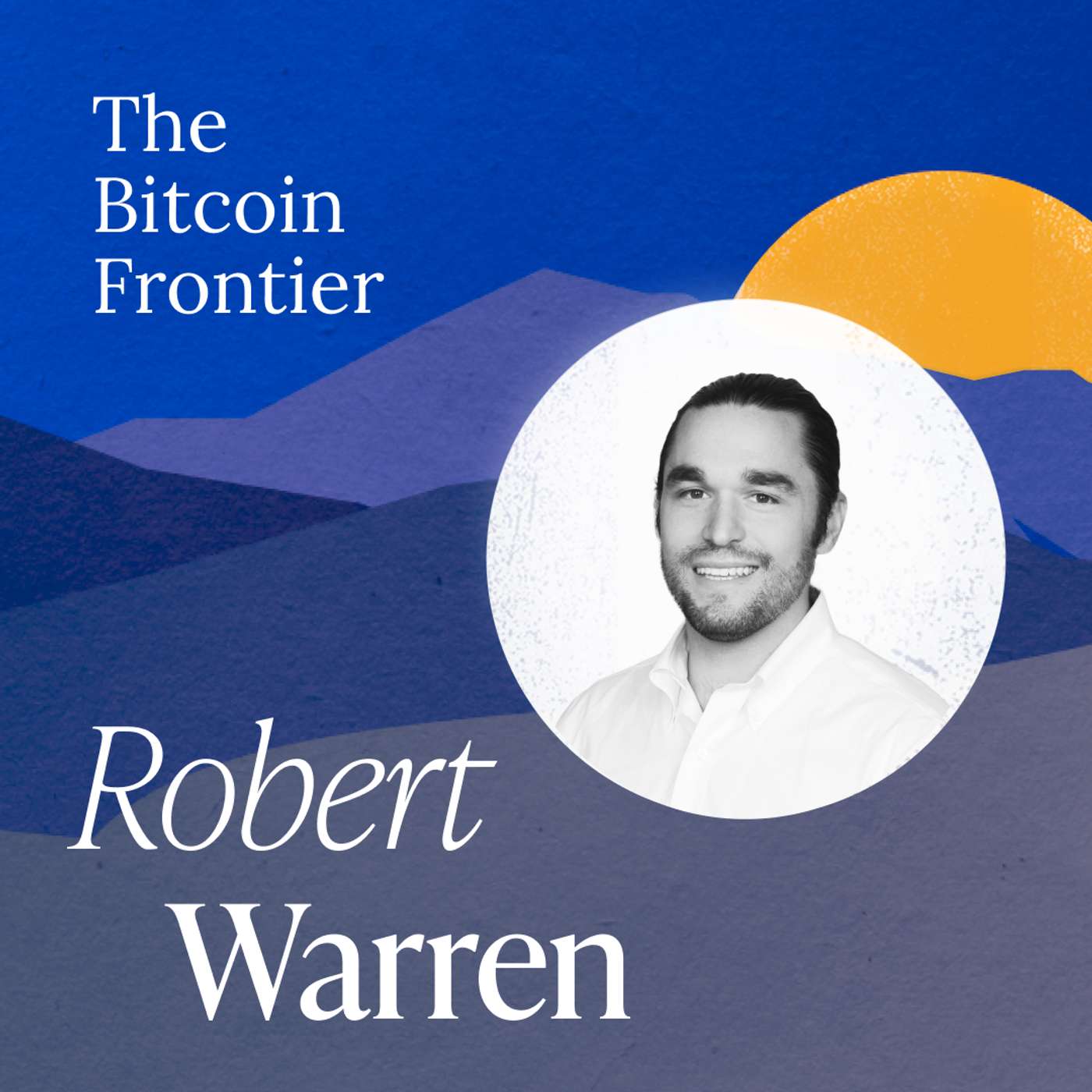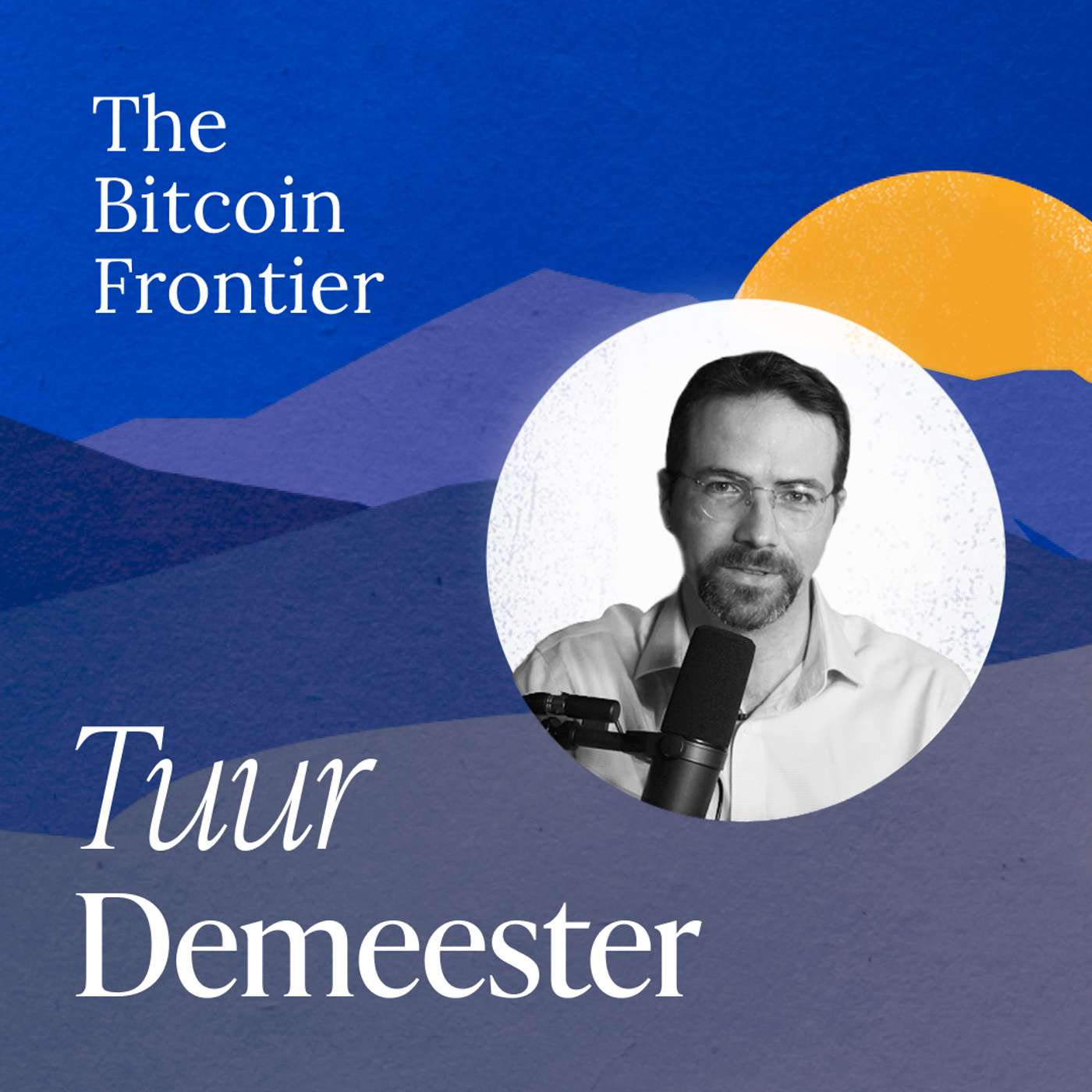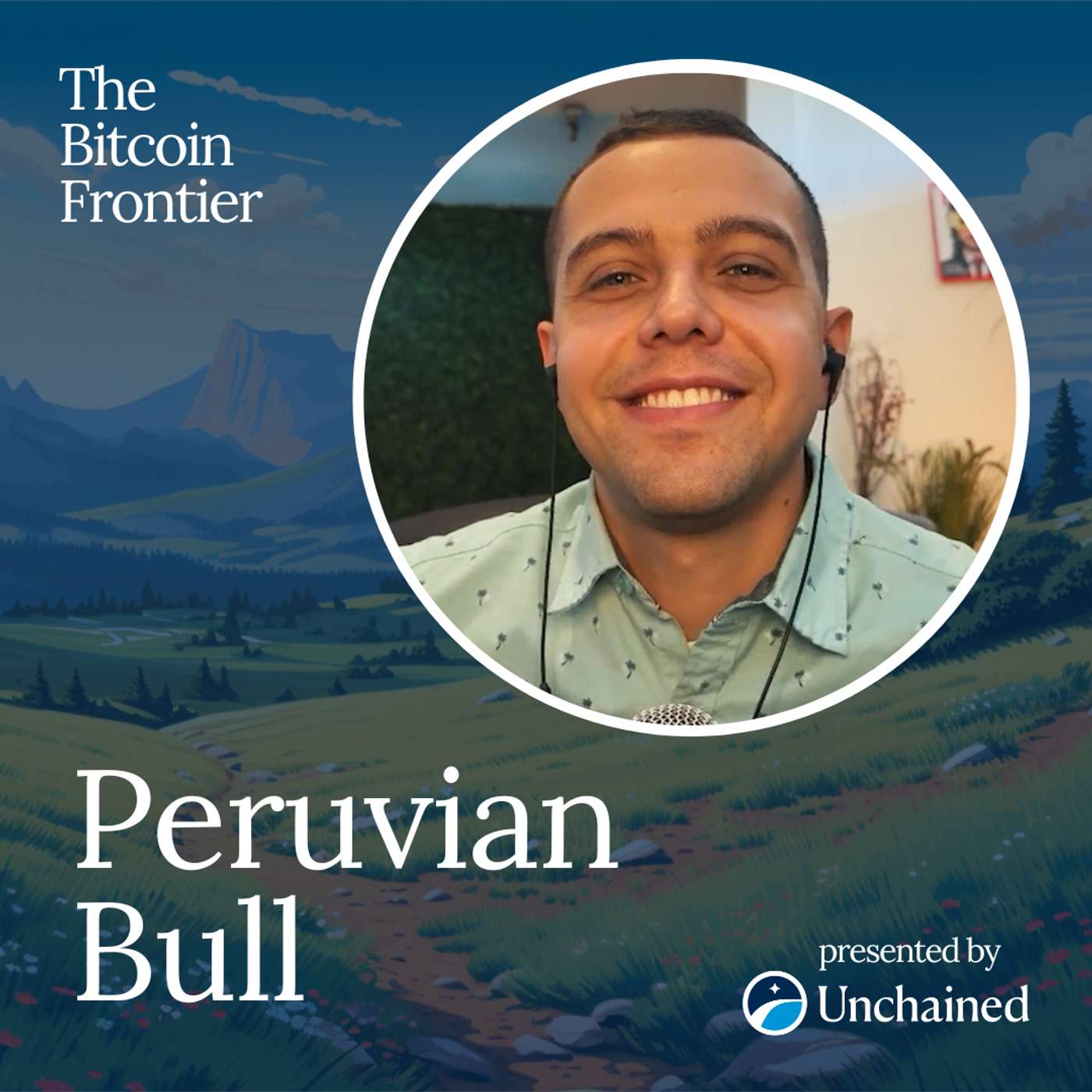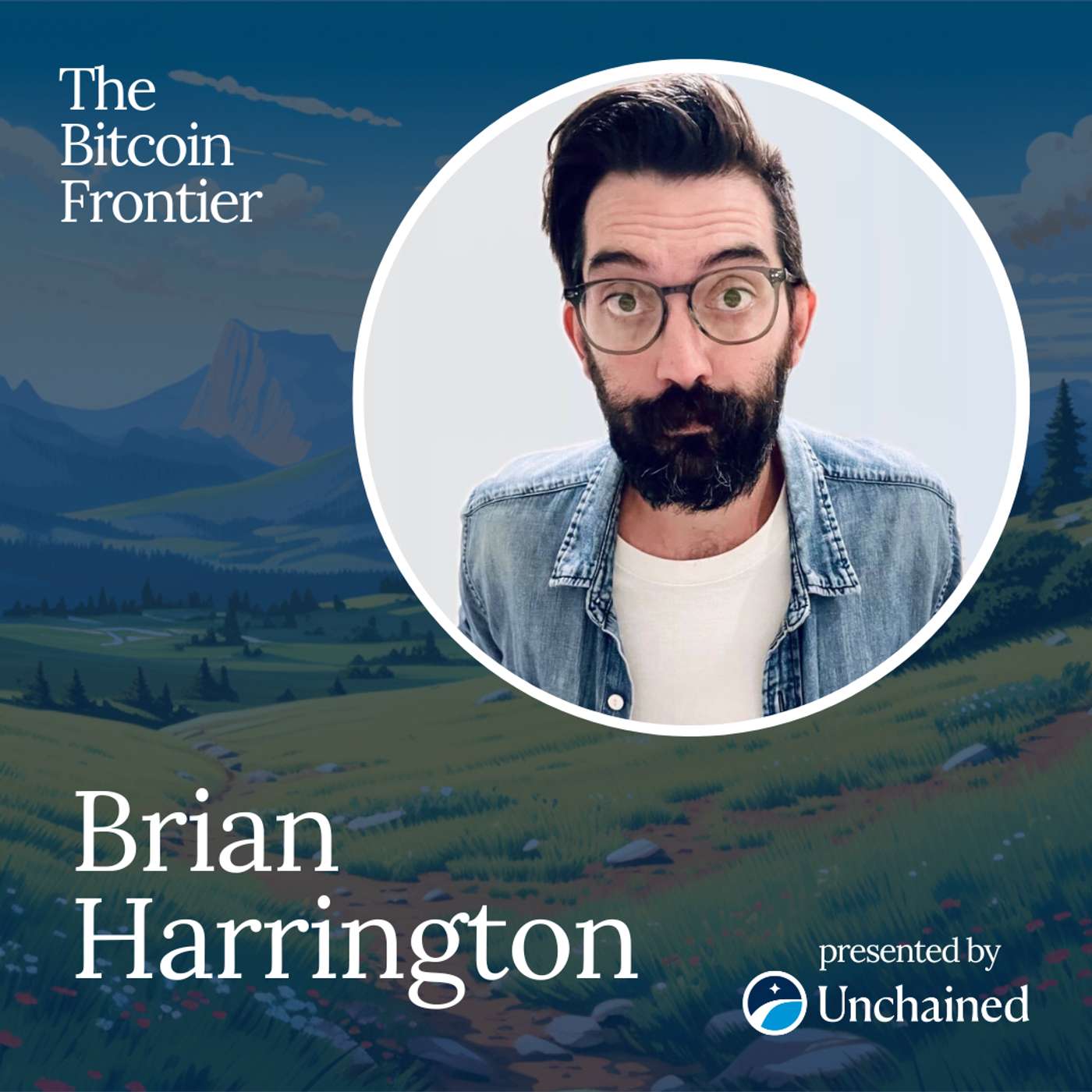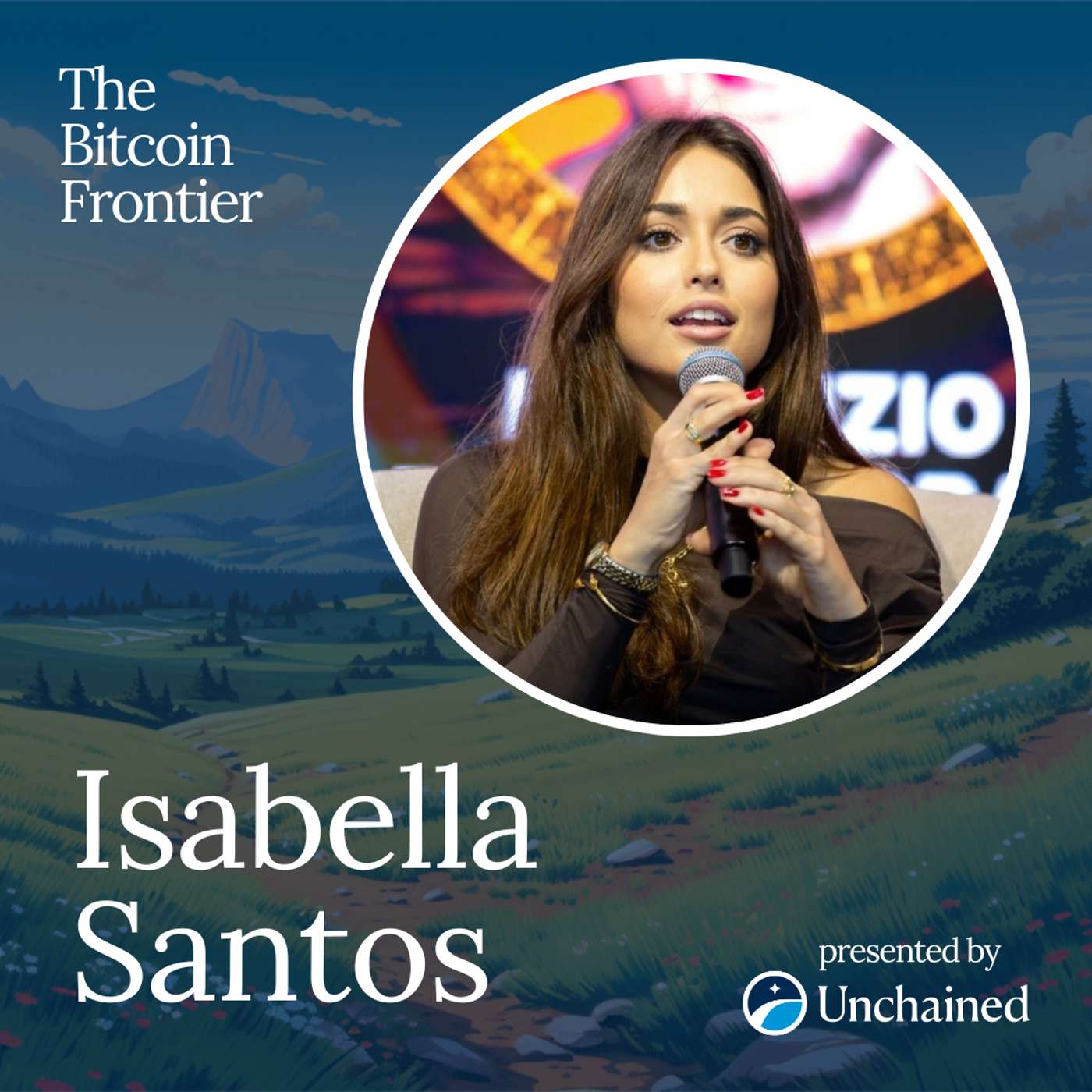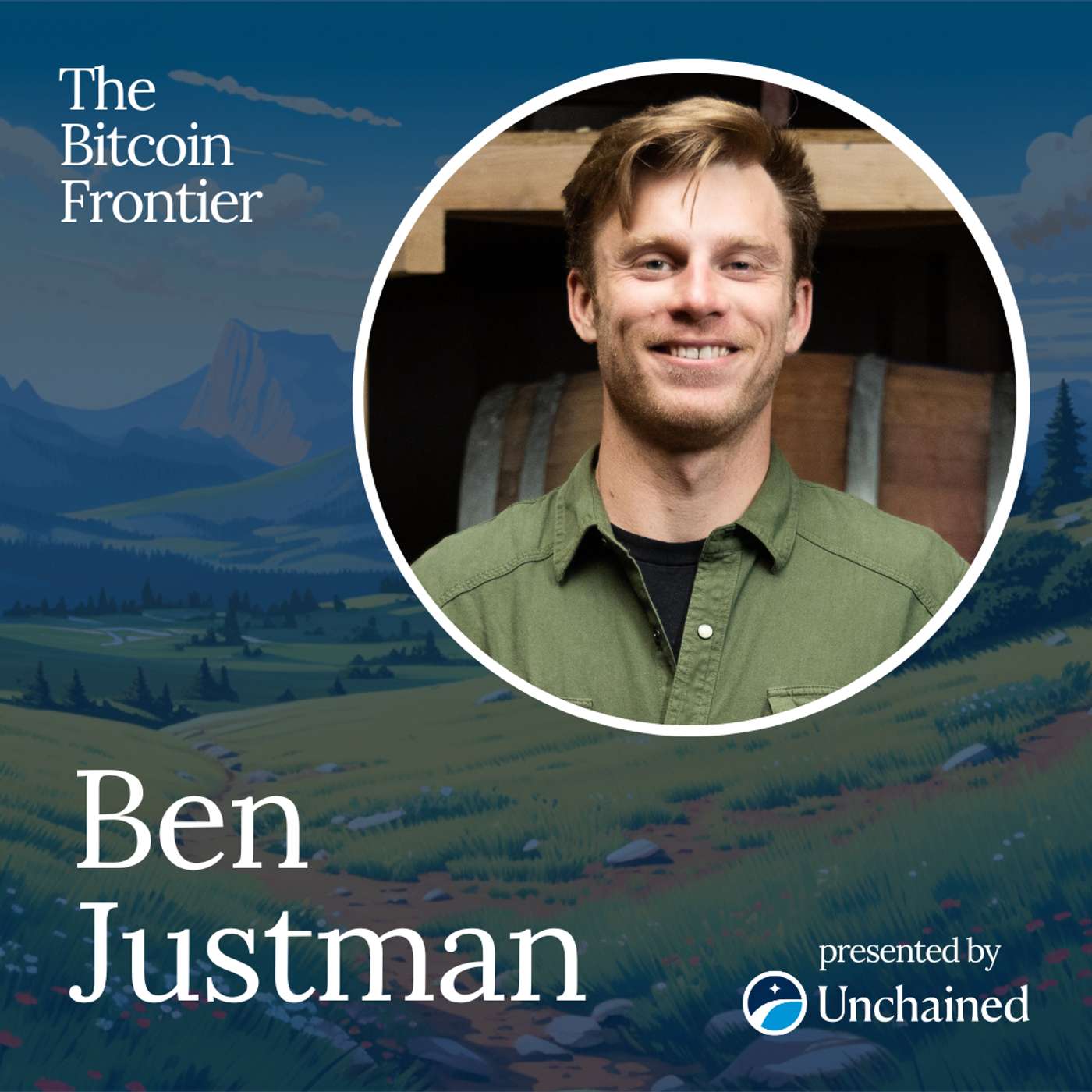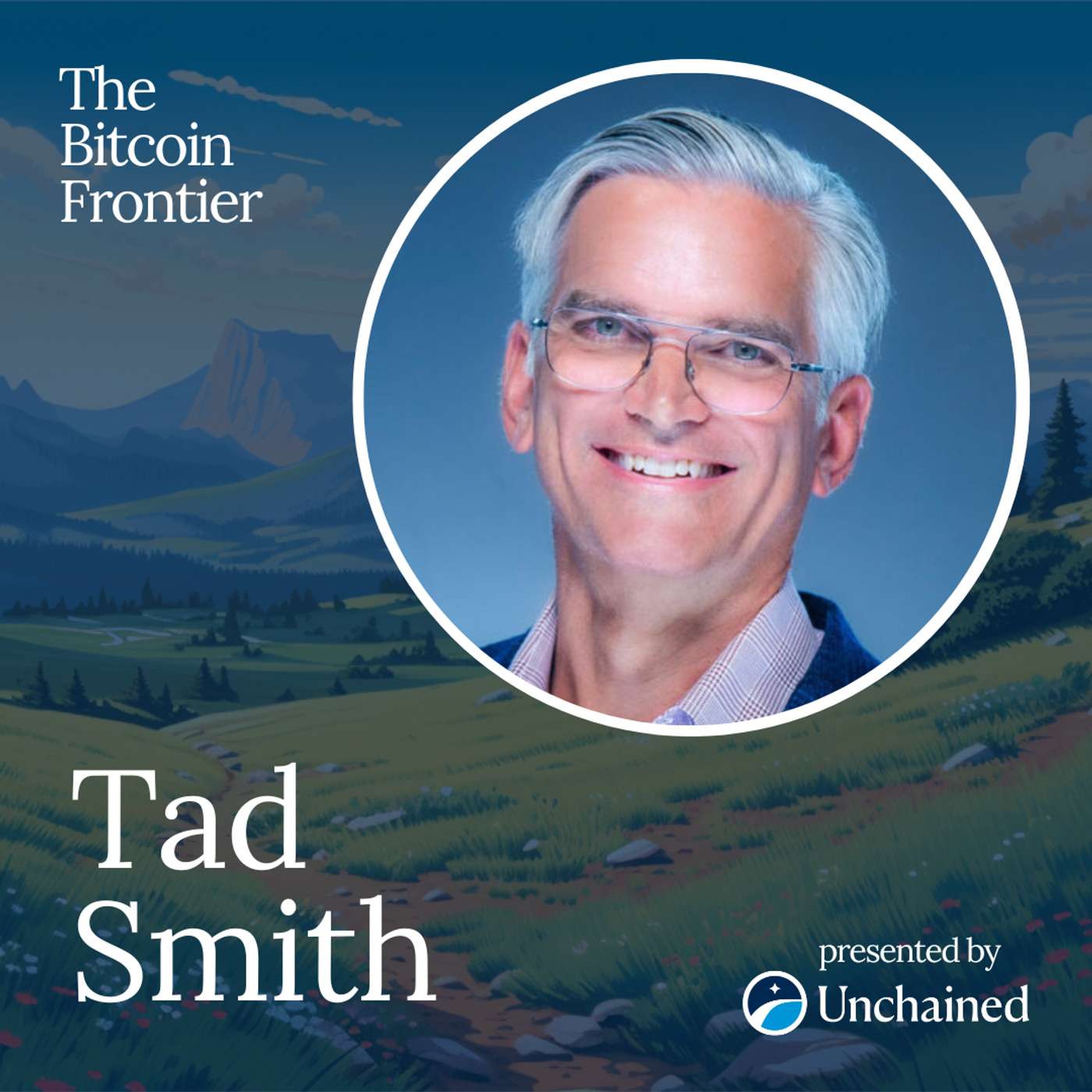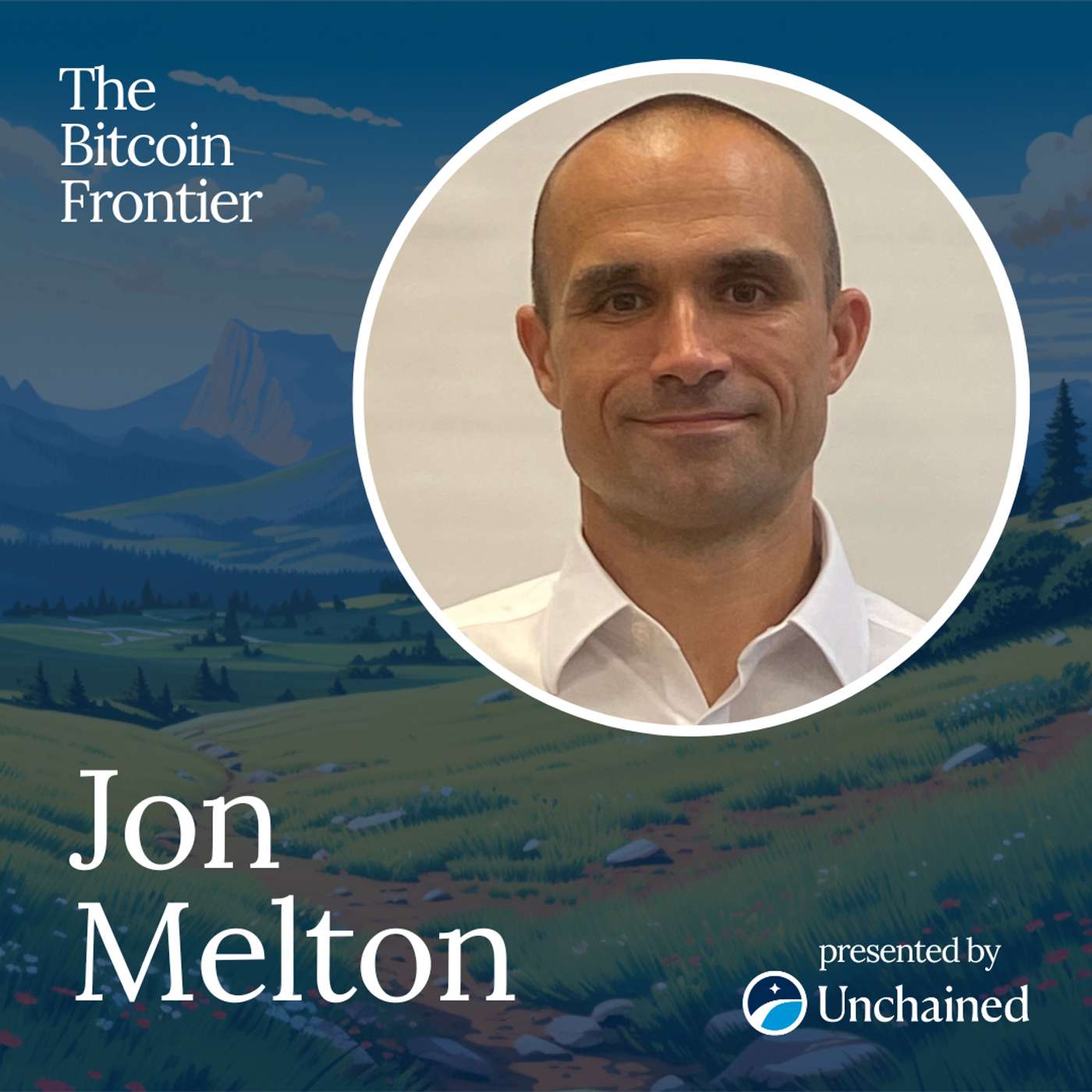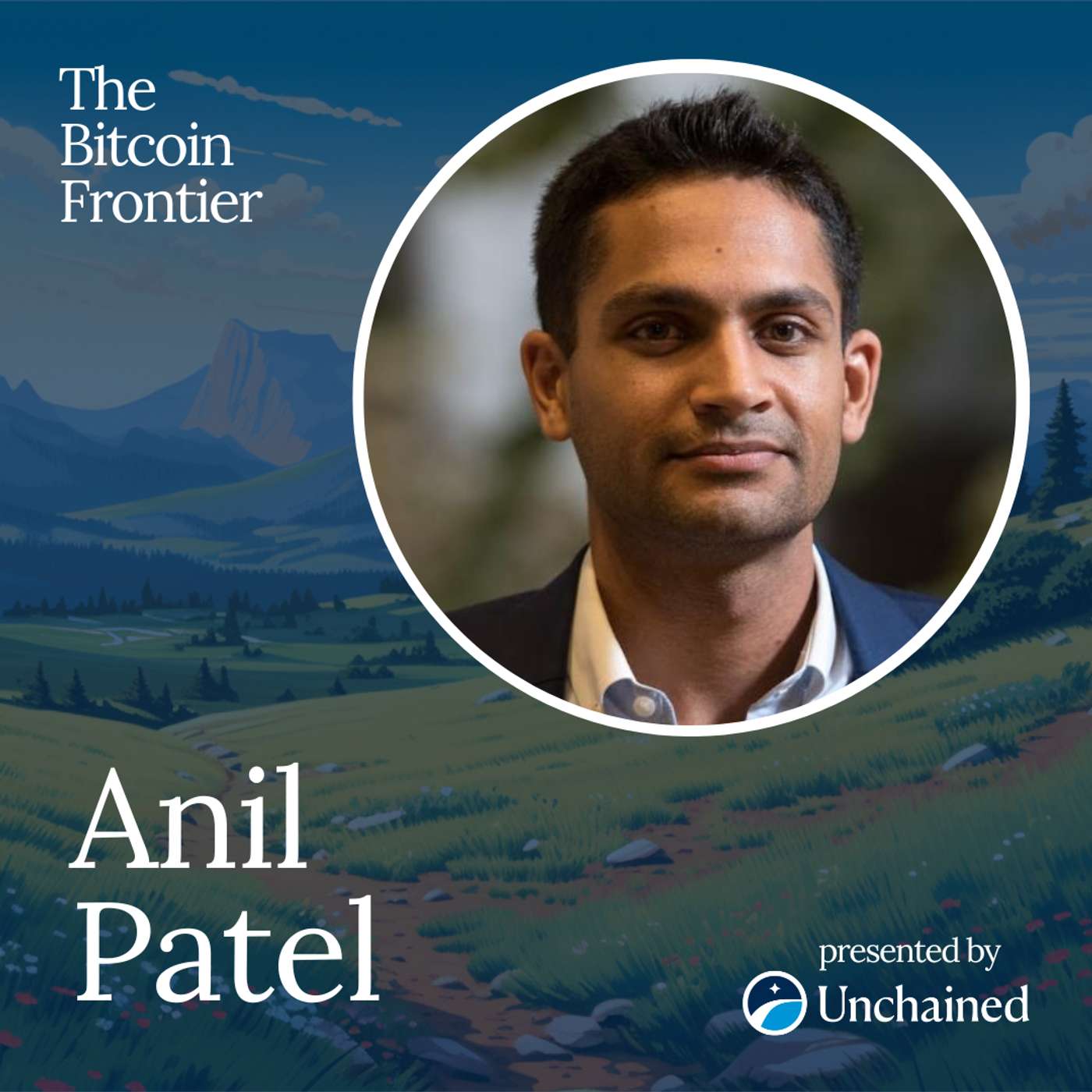Discover The Bitcoin Frontier
The Bitcoin Frontier

The Bitcoin Frontier
Author: Unchained Capital, Inc
Subscribed: 79Played: 2,040Subscribe
Share
© 2025 Unchained Capital, Inc
Description
Explore how bitcoin as a monetary tool is transforming lives and perspectives. Through in-depth conversations, uncover stories of innovation, disruption, and growth as we chart the ever-evolving bitcoin frontier. Whether you're a bitcoin veteran or just curious, The Bitcoin Frontier is your guide to the future of money.
108 Episodes
Reverse
Mark Connors is a veteran credit analyst and macro thinker who’s spent nearly four decades on Wall Street, from the bond desks of Solomon Brothers to the hedge fund trenches. What makes Mark unique is his ability to pull the lens back—connecting regime changes in global finance to bitcoin’s rise as the asset with true integrity.In this episode, Mark joins The Bitcoin Frontier to share how his career shaped his understanding of risk, why bitcoin is the next monetary regime shift, and how Wall Street is still missing the plot. We dig into why bitcoin’s volatility is actually a superpower, how financial plumbing is breaking beneath the surface, and why institutions will eventually be forced to adopt bitcoin as pristine collateral.SUPPORT THE PODCAST: → Subscribe → Leave a review → Share the show with your friends and family → Send us an email: podcast@unchained.com → Learn more about Unchained: https://unchained.com/?utm_source=you... → Book a free call with a bitcoin expert: https://unchained.com/consultation?ut...TIMESTAMPS:0:00 – Intro & Mark’s 40-year Wall Street journey through credit and crisis3:15 – Lessons from Solomon Brothers to Bitcoin Park: where integrity lives6:05 – How bitcoin fits into the third monetary regime since Bretton Woods8:00 – The “hacks” that brought bitcoin into Wall Street’s line of sight10:00 – Bitcoin as collateral and the coming collateral crisis12:20 – Understanding volatility: why bitcoin’s risk is asymmetric17:00 – The myth of volatility and the truth about upside variance21:00 – “Good vol” vs “bad vol”: how bitcoin surprises to the upside25:00 – Why rebalancing into bitcoin beats traditional 60/40 portfolios29:00 – Can Wall Street co-opt bitcoin through paper markets?31:00 – The importance of holding your own keys and verifying collateral35:00 – Convincing older investors and rebuilding credibility post-FTX37:00 – Regime changes, Bretton Woods, and how history rhymes43:00 – How the dollar was “saved” by energy and the petrodollar system46:00 – Hidden cracks in the financial system and repo stress explained49:00 – How new liquidity facilities show a fragile, patched-up system52:00 – Will Wall Street adopt bitcoin for safety or profit?55:00 – The slow cultural shift toward integrity in finance57:00 – The ultimate incentive: clients demanding bitcoin exposure1:00:00 – Risks to bitcoin: mining centralization, paper supply, and innovation1:02:00 – Where to follow Mark and how he’s educating advisorsWHERE TO FOLLOW US: → Unchained X: https://x.com/unchained → Unchained LinkedIn: / unchainedcom → Unchained Newsletter: https://unchained.com/newsletter → Mark Connors’s Twitter: https://x.com/riskdimensions → Timot Lamarre’s Twitter: https://x.com/TimotLamarre
Peter Van Valkenburgh is the Executive Director of Coin Center, a leading nonprofit research and advocacy group focused on cryptocurrency policy. In this episode, Peter joins The Bitcoin Frontier to explore why defending the right to self-custody is about much more than bitcoin — it’s about the future of individual freedom, open-source innovation, and financial privacy. We dig into the parallels between the 1990s “crypto wars” and today’s digital sovereignty battles, the threats facing developers of privacy tools, and the constitutional foundations for privacy and property in the digital age.SUPPORT THE PODCAST: → Subscribe → Leave a review → Share the show with your friends and family → Send us an email: podcast@unchained.com → Learn more about Unchained: https://unchained.com/?utm_source=you... → Book a free call with a bitcoin expert: https://unchained.com/consultation?ut...TIMESTAMPS:0:00 – Intro and Peter’s journey from acting to bitcoin policy2:00 – Discovering the cypherpunks and the roots of internet freedom4:00 – Entering bitcoin through law school and meeting Jerry Brito6:00 – Founding Coin Center and defining “permissionless innovation”9:00 – The mission: protecting the freedom to build and use open blockchains11:00 – Bitcoin’s privacy problem and the legal risks of building privacy tech13:00 – Educating DC: explaining bitcoin to Congress in the early days16:00 – Navigating the SEC, ICOs, and defining what counts as a security18:30 – The evolution from education to constitutional litigation22:00 – Bitcoin as the revival of a “bearer instrument” economy26:00 – The “secret right to cash” and the Fourth Amendment’s blind spot30:00 – Privacy, property, and what bitcoin reveals about constitutional limits35:00 – The Keep Your Coins Act and why it matters for financial sovereignty43:00 – The DOJ’s shift toward prosecuting developers — and why it’s dangerous46:00 – Inside the Tornado Cash and Samurai Wallet prosecutions50:00 – How Coin Center is fighting for software publishing rights54:00 – Legislative progress: Clarity, Keep Your Coins, and BRCA1:00:00 – Lessons from the 1990s encryption wars1:03:00 – How liability protections shaped (and centralized) the internet1:08:00 – The convenience dilemma: why self-custody must become easier1:12:00 – The Bank Secrecy Act, mass surveillance, and new legal challenges1:19:00 – Coin Center’s constitutional lawsuits for privacy and association rights1:23:00 – Why the BSA is ripe for reform — and bitcoin’s role in that debate1:27:00 – Zero-knowledge proofs, AML, and a future of privacy-preserving compliance1:29:00 – How self-custody wallets enable digital identity and personal sovereignty1:31:00 – Closing thoughts: bitcoin as the foundation for a freer digital futureWHERE TO FOLLOW US: → Unchained X: https://x.com/unchained → Unchained LinkedIn: / unchainedcom → Unchained Newsletter: https://unchained.com/newsletter → Joe Kelly’s Twitter: https://x.com/josephkelly → Peter Van Valkenburgh’s Twitter: https://x.com/valkenburgh
Seth Hertlein is the Global Head of Policy at Ledger and one of the earliest, most persistent advocates for bitcoin self-custody in Washington. Known for his “lone ranger” years as the only lobbyist focused on protecting non-custodial rights, he brings a rare combination of securities law expertise, political insight, and deep conviction about individual property rights. In this episode, Seth joins The Last Free Americans to share how he fell down the bitcoin rabbit hole, why self-custody is a return to humanity’s oldest property norms, and how today’s policy battles will define digital freedom for generations. We dig into the evolution of financial intermediaries, the history of natural rights from Aristotle to the framers, and the real political forces lining up for and against self-custody.SUPPORT THE PODCAST:→ Subscribe → Leave a review → Share the show with your friends and family → Send us an email: podcast@unchained.com→ Learn more about Unchained: https://unchained.com/?utm_source=youtube&utm_medium=social&utm_campaign=podcast → Book a free call with a bitcoin expert: https://unchained.com/consultation?utm_source=youtube&utm_medium=social&utm_campaign=podcastTIMESTAMPS:0:00 – Intro to The Last Free Americans & Seth’s unique role in policy2:20 – How a securities regulator became an “accidental crypto lobbyist”5:03 – Early bitcoin reading, monetary policy, and recognizing its political nature7:43 – The aha moment of self-custody: from Ledger device to first withdrawal12:58 – Ownership vs. possession: how financial markets drifted into full intermediation16:40 – Why self-custody is not new: property as a natural human right22:45 – How centralization overtook markets: certificates, DTCC, and efficiency tradeoffs27:58 – 2021: the year Washington and the industry “woke up” to each other33:10 – Keep Your Coins Act, Canadian truckers, and why lawful peer-to-peer matters38:40 – Property rights, natural law, and the framers’ blind spots on privacy45:55 – Executive Order 6102, takings law, and lessons for bitcoin52:03 – How the Bank Secrecy Act and third-party doctrine became digital surveillance59:42 – The three camps opposing self-custody: nats-ec hawks, socialists, and bureaucracies1:05:40 – The IRS broker rule, CRA repeal, and precedents for stopping overreach1:11:22 – House vs. Senate language: what “retain the right” really means1:17:14 – Odds of passage in 2024 and why Senate floor time is everything1:22:44 – The global landscape: why America is still the last best hope1:27:50 – What comes next: privacy as the next digital freedom frontier1:32:10 – Closing thoughts on restoring founding principles through BitcoinWHERE TO FOLLOW US: → Unchained X: https://x.com/unchained → Unchained LinkedIn: https://www.linkedin.com/company/unchainedcom → Unchained Newsletter: https://unchained.com/newsletter → Joe Kelly’s Twitter: https://x.com/josephkelly → Seth Hertlein’s Twitter: https://x.com/SethHertlein
Kent is the CEO of Sazmining and a longtime bitcoiner who previously led large-scale solar operations before building a non-custodial bitcoin mining platform. Recently, he became the victim of a sophisticated in-person scam that resulted in the loss of $220,000 worth of bitcoin.In this episode, Kent joins The Bitcoin Frontier to share exactly what happened during the scam, what red flags he missed, and why he decided to go public. We dig into the psychology of social engineering, how attackers exploit self-interest, and why even experienced bitcoiners remain vulnerable. We also cover how to build operational security inside a business to mitigate social engineering attacks, how families can prepare for deepfake attacks, and why bitcoin’s immutability still strengthens personal responsibility even in difficult moments.SUPPORT THE PODCAST: → Subscribe → Leave a review → Share the show with your friends and family → Send us an email: podcast@unchained.com → Learn more about Unchained: https://unchained.com/?utm_source=youtube&utm_medium=social&utm_campaign=podcast → Book a free call with a bitcoin expert: https://unchained.com/consultation?utm_source=youtube&utm_medium=social&utm_campaign=podcastTIMESTAMPS:0:00 – Intro & Kent’s disclosure of a $220k bitcoin scam3:20 – Why he chose to go public: PSA, law-enforcement pressure, and justice7:10 – Kent’s background in solar, bitcoin, and building Sazmining10:05 – The setup: a “family office” deal, travel, and early yellow flags14:40 – The first meeting in Amsterdam & unusual trust-building exercises19:00 – How the attackers built credibility and portrayed ultra-wealth23:15 – The second meeting, Atomic Wallet, and how the sweep unfolded28:40 – The psychological trap: self-interest, exhaustion, and urgency34:00 – Why immutability didn’t shake his conviction in bitcoin37:25 – Internal policy changes: whitelisting, diligence, and cooling-off periods41:50 – Distinguishing roles: CEO instincts vs. bitcoiner instincts45:05 – Scam evolution, social engineering, and the danger of urgency49:20 – Efforts to recover funds & the limits of both private and public options54:10 – How AI deepfakes raise the stakes for family safety57:20 – Why code words, local trust, and multisig can protect loved ones59:40 – Closing thoughts, personal accountability & Sazmining’s missionWHERE TO FOLLOW US: → Unchained X: https://x.com/unchained → Unchained LinkedIn: https://www.linkedin.com/company/unchainedcom → Unchained Newsletter: https://unchained.com/newsletter → Kent Halliburton’s Twitter: https://x.com/khalliburton → Timot Lamarre’s Twitter: https://x.com/TimotLamarre
Zack Shapiro is the head of legal and policy at the Bitcoin Policy Institute and a key architect behind the Peer-to-Peer Rights Fund. He’s spent years on the frontlines where law, technology, and human freedom intersect—helping lawmakers and judges understand what it means to hold value in the digital age. In this episode, Zack joins The Bitcoin Frontier to break down why self-custody is foundational to bitcoin’s value, how the Clarity Act could define financial freedom for a generation, and why the right to hold your own money might be the most American right of all.We dig into the constitutional roots of property rights, how U.S. law is being stretched to fit a peer-to-peer world, and why the fight for non-custodial software developers will determine the future of bitcoin in America.SUPPORT THE PODCAST:→ Subscribe → Leave a review → Share the show with your friends and family → Send us an email: podcast@unchained.com→ Learn more about Unchained: https://unchained.com/?utm_source=you... → Book a free call with a bitcoin expert: https://unchained.com/consultation?ut...TIMESTAMPS:0:00 – Intro & the mission behind The Last Free Americans series2:00 – What self-custody really means and why it’s the foundation of bitcoin’s value3:45 – ETFs, financialization, and the fading connection to real bitcoin5:00 – Why self-custody matters more than ever in 20256:15 – How outdated laws are clashing with a peer-to-peer world7:40 – The Clarity Act and the battle for non-custodial rights9:00 – Would bitcoin even be valuable without self-custody?10:00 – How self-custody connects to America’s founding values12:00 – The Constitution’s protections for holding bitcoin: 1st, 4th, 5th, 9th Amendments16:00 – The history lesson: Executive Order 6102 and gold confiscation18:30 – Enumerated powers, the 9th Amendment, and the people’s retained rights21:00 – Why protecting non-custodial developers is critical to freedom23:30 – Tornado Cash, Samurai Wallet, and the dangerous new legal precedents27:30 – Knowledge vs. intent: how the DOJ’s theories stretch the law31:00 – The risk of calling developers “money transmitters”33:30 – Steelmanning the other side: why regulators see a loophole37:00 – How the Bank Secrecy Act evolved from mob busting to digital dragnet40:30 – From halawa networks to bitcoin: applying old laws to new rails42:30 – The real ideological divide: state control vs. individual liberty46:00 – Why self-custody embodies the American idea of limited government47:30 – If Bitcoin existed in 1776, would the framers have protected self-custody?49:00 – Strategy going forward: the Clarity Act, education, and vigilance52:00 – The political battle ahead: Elizabeth Warren, ICOs, and what’s really at stake54:00 – How bitcoin helps the least powerful—and why that matters mostWHERE TO FOLLOW US: → Unchained X: https://x.com/unchained → Unchained LinkedIn: / unchainedcom → Unchained Newsletter:
Tim Hite is the director of policy at Exodus and a former congressional staffer for Rep. Warren Davidson. He helped shape early self-custody legislation—including the Keep Your Coins Act (a playful nod to “KYC”)—and bridges law, technology, and individual rights. In this episode, Tim’s discussion kicks off The Last Free Americans miniseries to share the origin story of self-custody protections on Capitol Hill, how “keep your coins” language differs from the Clarity Act’s approach, and what meaningful safeguards against CBDCs could look like. We dig into the evolution of property rights in a digital world, why illicit-finance fears are often overstated, and how social media has changed the legislative battlefield.SUPPORT THE PODCAST:→ Subscribe→ Leave a review→ Share the show with your friends and family→ Send us an email: podcast@unchained.com→ Learn more about Unchained: https://unchained.com/?utm_source=youtube&utm_medium=social&utm_campaign=podcast→ Book a free call with a bitcoin expert: https://unchained.com/consultation?utm_source=youtube&utm_medium=social&utm_campaign=podcastTIMESTAMPS:0:00 – Intro, disclaimers & why self-custody matters now0:51 – “The Last Free Americans”: series premise1:16 – Tim’s path: 2017 bull run, law school, FINRA, and meeting Rep. Davidson3:34 – From Hill staffer to crypto policy: Token Taxonomy Act & early frameworks6:51 – The spark for the Keep Your Coins Act and naming the bill11:12 – Two legislative styles: affirming a right vs. restricting regulators16:24 – Digital ownership as a new chapter in American property rights19:05 – CBDCs vs. self-custody: opposite ends of the spectrum22:30 – Social media’s role: sunlight, mobilization, and changing the odds30:34 – The 2020 “unhosted wallet” rule & why KYCs on self-hosted wallets don’t fit39:00 – Bank Secrecy Act’s $10k threshold, report overload, and diminishing returns41:37 – House passage, Senate path, and realistic timelines for the Clarity Act47:26 – What’s next: tokenized securities and the future of self-custody52:58 – Peer-to-peer (with an asterisk): whitelists, accounts, and true control55:01 – Closing thoughts: momentum, vigilance, and “nature finds a way”WHERE TO FOLLOW US: → Unchained X: https://x.com/unchained → Unchained LinkedIn: https://www.linkedin.com/company/unchainedcom → Unchained Newsletter: https://unchained.com/newsletter → Joe Kelly’s Twitter: https://x.com/josephkelly → Tim Hite’s Twitter: https://x.com/TimHite → Jose Burgos (Director of Media Production): https://x.com/DeFBeD
Joe Kelly is the co-founder and CEO of Unchained. In this latest episode, Joe shares his story and Alaskan roots that shaped a deep respect for self-sufficiency—an experience he now applies to the digital frontier. In this episode, Joe joins The Bitcoin Frontier to share why Unchained is launching a new miniseries, The Last Free Americans, how self-custody became his life’s work, and why the conservation movement offers a powerful analogy for protecting financial freedom. We dig into the frontier phases of new assets and ideas, the role of ETFs as a bridge (not the destination), and how policies like developer protections and “keep your coins” language can ring-fence essential rights.SUPPORT THE PODCAST: → Subscribe → Leave a review → Share the show with your friends and family → Send us an email: podcast@unchained.com → Learn more about Unchained: https://unchained.com/?utm_source=youtube&utm_medium=social&utm_campaign=podcast → Book a free call with a bitcoin expert: https://unchained.com/consultation?utm_source=youtube&utm_medium=social&utm_campaign=podcastTIMESTAMPS:0:00 – Intro: The Last Free Americans and what’s at stake with self-custody1:06 – Alaska, boats, and learning self-sufficiency2:54 – Conservation mindset: preserving wilderness and preserving peer-to-peer money4:03 – From accounts to keys: the “aha” of sending bitcoin yourself5:39 – Seeing the water we swim in: intermediaries, fees, and privacy tradeoffs8:03 – Frontiers and phases: from prospectors to politics—how new assets mature10:57 – Gold rush parallels: excess, scams, and integration into the mainstream12:55 – National parks as a model: ring-fencing what matters for future generations15:00 – “The last free Americans”: a proud warning about peer-to-peer rights17:02 – Building Unchained on bitcoin’s assumptions, not fiat rails19:16 – ETFs as a useful bridge vs. living the peer-to-peer experience21:03 – Who are today’s “John Muirs”? Gear, guidance, and making self-custody approachable23:42 – Beyond one bill: culture, developer protections, and keep-your-coins language26:34 – Free speech, code, and the very American fight for financial privacy27:34 – Short memories: SVB, protests, and why self-custody matters before the next shock29:16 – What to expect from the series and the intellectual adventure of bitcoinWHERE TO FOLLOW US: → Unchained X: https://x.com/unchained → Unchained LinkedIn: https://www.linkedin.com/company/unchainedcom → Unchained Newsletter: https://unchained.com/newsletter → Joe Kelly’s Twitter: https://x.com/josephkelly → Timot Lamarre’s Twitter: https://x.com/TimotLamarre
Pierre Rochard is one of the original bitcoin thinkers, builders, and educators — now serving as CEO of The Bitcoin Bond Company. Known for popularizing the term “speculative attack” in the bitcoin space, Pierre has long explored how bitcoin can replace legacy finance from the inside out.In this episode, Pierre joins The Bitcoin Frontier to discuss how banks adopting bitcoin could strengthen global stability, how fractional reserve banking might evolve on a bitcoin standard, and why he believes governments buying bitcoin is inevitable. We dig into the rise of bitcoin treasury companies, the idea behind bitcoin bonds, and whether bitcoin’s decentralization can withstand institutional adoption.SUPPORT THE PODCAST: → Subscribe → Leave a review → Share the show with your friends and family → Send us an email: podcast@unchained.com → Learn more about Unchained: https://unchained.com/?utm_source=youtube&utm_medium=social&utm_campaign=podcast → Book a free call with a bitcoin expert: https://unchained.com/consultation?utm_source=youtube&utm_medium=social&utm_campaign=podcastTIMESTAMPS:0:00 – Intro & bitcoin’s ideological roots in libertarianism3:00 – Why banks holding bitcoin could prevent future financial crises7:20 – Can fractional reserve banking exist on a bitcoin standard?10:50 – MicroStrategy and the rise of bitcoin treasury companies12:40 – Why collapsing banks would be dangerous for society16:00 – Financial intermediation, savings culture, and a soft landing to a bitcoin economy18:00 – “Money for enemies”: Why state adoption isn’t betrayal20:00 – Bitcoin in U.S. and state reserves: From Texas to Trump23:00 – Can governments or corporations co-opt bitcoin?25:00 – What bitcoin bonds are and how the Bitcoin Bond Company works29:30 – Bringing bitcoin into institutional portfolios through structured credit35:00 – Comparing bitcoin bonds to MicroStrategy’s convertibles37:00 – Why treasury companies are undervalued and what investors are missing40:00 – Hyperbitcoinization, speculative attacks, and soft landings45:00 – How adoption is accelerating asymmetrically across nations50:00 – The ETF era: Collaborative custody and the path from convenience to sovereignty55:00 – Have we peaked in self-custody? UX, education, and generational change58:00 – Is bitcoin’s freedom money inevitable — and what are the real threats ahead?1:02:00 – Quantum computing, Satoshi’s coins, and the future of protocol resilience1:03:00 – Where to find Pierre online and closing thoughtsWHERE TO FOLLOW US: → Unchained X: https://x.com/unchained → Unchained LinkedIn: https://www.linkedin.com/company/unchainedcom → Unchained Newsletter: https://unchained.com/newsletter → Pierre Rochard’s Twitter: https://x.com/BitcoinPierre → Timot Lamarre’s Twitter: https://x.com/TimotLamarre
Marty Bent is a bitcoin investor, media founder, and host of TFTC — one of the longest-running bitcoin podcasts. He’s also a managing partner at Ten31, supporting companies building critical bitcoin infrastructure. Marty is uniquely positioned at the intersection of bitcoin, energy, and now artificial intelligence.In this episode, Marty joins The Bitcoin Frontier to share how AI is transforming the bitcoin ecosystem, how his team at TFTC is leveraging it to streamline media production, and how it’s fueling his latest creative projects. We dig into how he built Opportunity Cost, why AI drives decentralization in mining, and how bitcoiners can use these tools to stay ahead of the curve.SUPPORT THE PODCAST: → Subscribe → Leave a review → Share the show with your friends and family → Send us an email: podcast@unchained.com→ Learn more about Unchained: https://unchained.com/?utm_source=you... → Book a free call with a bitcoin expert: https://unchained.com/consultation?ut...TIMESTAMPS:0:00 – Intro & why bitcoin and AI are converging faster than anyone expected2:00 – Marty’s projects: TFTC, Ten31, and bitcoin mining5:00 – The evolution of TFTC and what the rebrand to “Truth for the Commoner” means8:30 – How the team integrates AI tools across research, writing, and production12:00 – From Perplexity to Claude: learning to use AI as a research assistant15:00 – Automating TFTC’s backend workflows with AI and no-code tools18:00 – Clipping, editing, and distribution: using AI for speed and quality23:00 – Building Opportunity Cost: turning fiat prices into sats in your browser27:00 – Why open-source and privacy-preserving design still matter30:00 – The birth of AI-generated storytelling33:00 – Storyboarding, JSON prompts, and producing viral AI bitcoin videos38:00 – The Trojan horse approach: spreading bitcoin ideas through culture46:00 – Bitcoin and AI’s overlap: how energy demand is driving decentralization50:00 – Paying for compute with bitcoin and why eCash may win55:00 – AI, energy, and the physical limits of growth58:00 – How bitcoin founders are using AI to build faster and cheaper1:00:00 – Practical advice: using AI without compromising your craft or security1:01:30 – Where to follow Marty and watch his latest creationsWHERE TO FOLLOW US: → Unchained X: https://x.com/unchained → Unchained LinkedIn: / unchainedcom → Unchained Newsletter: https://unchained.com/newsletter → Marty Bent’s Twitter: https://x.com/MartyBent → Trey Seller’s Twitter: https://x.com/ts_hodl
James Check (aka Checkmate) is the co-founder of Checkonchain and one of the leading voices making onchain data accessible for everyday bitcoiners. Known for his ability to turn complex charts into compelling stories, James blends his engineering background with market analysis to help people see human behavior imprinted in bitcoin’s ledger. In this episode, James joins The Bitcoin Frontier to share why realized cap is one of the most powerful adoption metrics, how to interpret profit and loss across holders, and what onchain data is saying about the current cycle. We dig into the role of ETFs and treasury companies, the impact of derivatives on market structure, and why the future of onchain analytics remains deeply human.SUPPORT THE PODCAST: → Subscribe → Leave a review → Share the show with your friends and family → Send us an email: podcast@unchained.com→ Learn more about Unchained: https://unchained.com/?utm_source=you... → Book a free call with a bitcoin expert: https://unchained.com/consultation?ut...TIMESTAMPS: 0:00 – Intro & why onchain data matters for bitcoin 1:30 – Buying the 2017 top, engineering background & finding bitcoin 4:50 – Realized cap, cost basis, and why it just crossed $1T 7:30 – From civil engineering to onchain analysis 10:00 – Orange pill moments, macro influences, and early metrics 12:40 – Human behavior, fear & greed mapped onchain 15:00 – Turning raw data into stories people understand 18:00 – State of the market in 2025: leverage, ETFs, and demand 22:00 – Cycles, late-stage dynamics & institutional flows 26:00 – Rethinking market cycles: the three-cycle structure 31:00 – Sell-side pressure, hodlers, and ETF dynamics 35:00 – Are ETFs and treasury companies changing onchain analysis? 40:00 – Profit, loss, and building decision frameworks for different price scenarios 46:00 – Key support zones: 110K, 90K, and Sailor’s liquidation line 49:00 – Derivatives, ETFs, and how flows shape volatility 54:00 – Risks of leverage, banks entering, and future fireworks 58:00 – Rapid fire: desert island metrics, entry point for retail, and data wish list 1:02:00 – The Australian bitcoin community & grassroots conferences 1:05:30 – The future of onchain analytics, AI, and Checkonchain’s next reportWHERE TO FOLLOW US: → Unchained X: https://x.com/unchained → Unchained LinkedIn: / unchainedcom → Unchained Newsletter: https://unchained.com/newsletter → James Check’s Twitter: https://x.com/_Checkmatey_ → Connor Dolan’s Twitter:
Rob Warren is Head of Research and Education at Bitcoin Park and the author of The Bitcoin Miners Almanac. He brings a unique ability to explain the economic incentives of bitcoin mining in a way that makes sense across industries and expertise. In this episode, Rob joins The Bitcoin Frontier to share how bitcoin’s incentive structure creates resilience, why mining is misunderstood but critical, and how energy markets and bitcoin naturally align. We dig into the history of mining and the difficulty adjustment, the realities of mining pools and decentralization, and the surprising ways bitcoin miners are accelerating global electrification.SUPPORT THE PODCAST: → Subscribe → Leave a review → Share the show with your friends and family → Send us an email: podcast@unchained.com→ Learn more about Unchained: https://unchained.com/?utm_source=you... → Book a free call with a bitcoin expert: https://unchained.com/consultation?ut...TIMESTAMPS: 0:00 – Intro & Rob’s role at Bitcoin Park 2:30 – From home mining experiments to Riot Platforms and Bitcoin Park 5:00 – Why Rob wrote The Bitcoin Miners Almanac 8:10 – The three essentials of mining: energy, cooling, and connectivity 9:30 – The brilliance of the difficulty adjustment 13:00 – Satoshi’s hard cap and why it broke economic orthodoxy 20:30 – How incentives keep miners aligned, even without ideology 24:00 – The “security budget” debate and what it misses 29:00 – Mining economics: liabilities, waste energy, and heat as an asset 31:00 – Flare gas, hydro, and turning liabilities into profitable inputs 37:00 – Gridless and bitcoin’s role in electrifying rural Africa 43:00 – AI superclusters and their overlap with bitcoin mining 49:00 – The history of mining pools and how Slush solved variance 56:00 – Difficulty, shares, and how pools account for work 1:02:00 – Centralization risks, hidden white-labeling, and Ocean’s model 1:11:00 – Bitcoin’s anti-fragility and the long-tail theory 1:18:00 – Adoption as a 140-year game, not a 5-year scheme 1:21:40 – Where to find Rob and upcoming Bitcoin Park summitsWHERE TO FOLLOW US: → Unchained X: / unchained → Unchained LinkedIn: / unchainedcom → Unchained Newsletter: https://unchained.com/newsletter → Rob Warren’s Twitter: https://x.com/BikesandBitcoin → Timot Lamarre’s Twitter: https://x.com/TimotLamarre
In this episode, Tuur joins The Bitcoin Frontier to talk about his latest report, How to Position for the Bitcoin Boom (2025 Edition). He share why he believes the 2025 bitcoin cycle will be longer than past cycles, why confiscation risk should be taken seriously, and how bitcoin treasury companies could reshape global adoption. We dig into stagflation, institutional adoption, and how to approach investing not only in bitcoin but also in bitcoin-native companies.SUPPORT THE PODCAST:→ Subscribe→ Leave a review→ Share the show with your friends and family→ Send us an email: podcast@unchained.com→ Learn more about Unchained: https://unchained.com/?utm_source=you...→ Book a free call with a bitcoin expert: https://unchained.com/consultation?ut...TIMESTAMPS:0:00 – Disclaimer & intro1:00 – Why Tuur released his latest report mid-cycle3:00 – Longer bitcoin cycles and why 2021 was an anomaly5:00 – The institutional cycle and bitcoin as an escape hatch6:30 – Long-term holders, conviction, and whale behavior8:00 – Risks to bitcoin: liquidations, hacks, confiscation, and more10:00 – Government stakes, Intel, and parallels to ETFs and MicroStrategy15:00 – Custody risk, avoiding low-hanging fruit, and the importance of self-custody18:00 – Politics, legitimacy, and bitcoin as a reserve asset19:30 – Macro outlook: dollar weakness, stagflation, and commodities23:00 – Why money printing is inevitable and lessons from Latin America29:00 – The “gradually, then suddenly” moment in markets31:00 – Bitcoin treasury companies, ETFs, and adoption dynamics35:00 – Consolidation, risks, and differences between ETFs and strategy companies40:00 – Investing in bitcoin companies vs bitcoin itself: diligence, timing, geography47:00 – Example: Anchorwatch and the importance of insurance for bitcoin custody49:00 – Philosophy: bitcoin as a side quest and avoiding idolatry53:00 – Swords into plowshares: virtue, stewardship, and technology for goodWHERE TO FOLLOW US:→ Unchained X: / unchained→ Unchained LinkedIn: / unchainedcom→ Unchained Newsletter: https://unchained.com/newsletter→ Tuur Demeester's Twitter: https://x.com/TuurDemeester→ Connor Dolan’s Twitter: https://x.com/conhodlan
Roberto Rios, known online as Peruvian Bull, is a macro researcher and writer. He’s best known for his Dollar Endgame series, where he explores global debt dynamics, reserve currency shifts, and the future of money. In this episode, Roberto joins The Bitcoin Frontier to share his insights on inflation mechanics, the breakdown of the yen carry trade, and how bitcoin fits into the global monetary reset. We dig into debt spirals, Triffin’s dilemma, and why liquidity is the ultimate driver of financial markets.SUPPORT THE PODCAST:→ Subscribe→ Leave a review→ Share the show with your friends and family→ Send us an email: podcast@unchained.com→ Learn more about Unchained: https://unchained.com/?utm_source=you...→ Book a free call with a bitcoin expert: https://unchained.com/consultation?ut...TIMESTAMPS:0:00 – How QE, deficits, and government spending really drive inflation4:00 – Roberto’s background, macro research journey, and Dollar Endgame series7:30 – Separating truth from propaganda in economics education12:00 – QE in 2010 vs. 2020: why one caused inflation and the other didn’t16:00 – The 2022 rate hike cycle, liquidity drains, and banking crises20:30 – Reverse repo, TGA, and creative liquidity injections25:00 – Why global liquidity is the best barometer for bitcoin’s price31:00 – Triffin’s dilemma and the birth of the dollar system37:00 – Foreigners owning US assets and the long-term risk to Americans43:00 – The simulacrum of markets: why asset prices detach from reality46:00 – The US debt spiral and foreign demand for Treasuries52:00 – Long-term debt risks, short-term bills, and emerging market dynamics57:00 – Breakdown of the yen carry trade and why it matters globally1:03:00 – Japan as a testing ground for future Federal Reserve policies1:06:00 – How bitcoin solves Triffin’s dilemma and fits into the new order1:09:00 – Where to follow Roberto and his Dollar Endgame researchWHERE TO FOLLOW US:→ Unchained X: https://x.com/unchained → Unchained Newsletter: https://unchained.com/newsletter→ Trey Sellers’ Twitter: https://x.com/ts_hodl
Brian Harrington is a long-time bitcoiner, educator, and the gift card product lead at Fold. He’s spent years helping people integrate bitcoin into their personal finance habits, while building deep local roots in his community in Temecula, California. In this episode, Brian joins The Bitcoin Frontier to share why bitcoin is uniquely important for both the individual and society, how “compounding” your geography and network can expand your influence, and why purposeful consumption can be as strategic as stacking sats. We dig into his journey from politics to bitcoin startups, the 10,000 people who could tip U.S. adoption, and how everyday purchases send powerful market signals for bitcoin companies.SUPPORT THE PODCAST:→ Subscribe→ Leave a review→ Share the show with your friends and family→ Send us an email: podcast@unchained.com→ Learn more about Unchained: https://unchained.com/?utm_source=you...→ Book a free call with a bitcoin expert: https://unchained.com/consultation?ut...TIMESTAMPS:0:00 – Intro & why bitcoin matters for both the individual and society3:00 – Compounding geography and network for long-term influence7:00 – Homeownership, perception, and credibility in your community12:30 – Growing up as bitcoiners and recognizing “the payoff”16:00 – Local politics, planning committees, and building influence24:00 – The 10,000 people who could tip U.S. bitcoin adoption29:00 – The best argument against bitcoin and why incentives matter33:00 – Balancing stacking sats with purposeful consumption40:00 – How Fold integrates bitcoin into everyday spending & market signals53:00 – Fold going public, future plans, and closing thoughtsWHERE TO FOLLOW US:→ Unchained X: / unchained→ Unchained LinkedIn: / unchainedcom→ Unchained Newsletter: https://unchained.com/newsletter→ Trey Sellers’ Twitter: https://x.com/ts_hodl
Isabella Santos is a content creator, educator, and bitcoiner. She runs BTC Isla on Isla Mujeres, where she’s planting seeds of financial literacy, self-custody, and sovereign empowerment—starting with Bitcoin education for locals. In this episode, Isabella joins The Bitcoin Frontier to share how she’s turning a sleepy island into a vibrant circular economy, what she’s learned documenting bitcoin adoption across Latin America, and why saving in sats is changing lives in Mexico.SUPPORT THE PODCAST:→ Subscribe→ Leave a review→ Share the show with your friends and family→ Send us an email: podcast@unchained.com→ Learn more about Unchained: https://unchained.com/?utm_source=youtube→ Book a free call with a bitcoin expert: https://unchained.com/consultation?utm_source=youtubeTIMESTAMPS:0:00 – Intro1:18 – From journalism to bitcoin advocacy3:02 – Why she moved to Isla Mujeres4:38 – Building BTC Isla and teaching bitcoin to locals6:01 – Financial literacy, circular economies, and bottom-up adoption9:10 – Saving in sats vs. fiat: real stories from her students11:00 – Why Western bitcoin narratives don’t always resonate globally13:02 – Documenting bitcoin in Peru, El Salvador, and beyond15:03 – Adapting messaging to different cultures and education levels17:03 – Launching Get Based TV for sovereign storytelling20:41 – What “awakening the sovereign individual” really means25:33 – Cultural hurdles to long-term thinking—and how Bitcoin helps27:04 – Escaping abusive systems via bitcoin circular economies29:34 – Lightning vs. on-chain: what matters on the ground31:04 – How self-custody education meets infrastructure limits34:18 – BitFit Games: gamified bitcoin education + community fitness36:07 – Building her own bitcoin citadel, gym, and villas39:02 – Accepting bitcoin at the gym and beyond40:05 – What’s next: villas, education reform, and new docs42:13 – How to support BTC IslaWHERE TO FOLLOW US:→ Unchained X: / unchained→ Unchained LinkedIn: / unchainedcom→ Unchained Newsletter: https://unchained.com/newsletter→ Trey Sellers’ Twitter: https://x.com/ts_hodl
In this episode, we speak with Jeff Booth—entrepreneur, author of The Price of Tomorrow, and founding partner at Ego Death Capital—about what happens when deflation meets a free market for the first time. Jeff unpacks how AI and robotics are accelerating exponential productivity, and why only bitcoin can encode that abundance into the economy without extraction. We talk about what it means to denominate your life in bitcoin, why the future is being built by people who have already opted out of the legacy system, and how venture capital looks different when the benchmark is no longer 8%—but 45%. Jeff offers a deeply moral take on progress, pricing, and why building on bitcoin is no longer risky—it’s necessary.SUPPORT THE PODCAST:→ Subscribe→ Leave a review→ Share the show with your friends and family→ Send us an email podcast@unchained.com→ Learn more about Unchained: https://unchained.com/?utm_source=you...→ Book a free call with a bitcoin expert: https://unchained.com/consultation?ut...TIMESTAMPS:0:00 – Intro1:10 – Why Jeff started Ego Death Capital5:22 – Bitcoin vs crypto: protocol vs casino8:35 – 45% risk-free rate: why Jeff invests in bitcoin companies13:40 – How deflation changes the game17:12 – The new benchmark: outcompete bitcoin20:44 – Why exponential tech and fiat money can’t coexist24:20 – How Jeff thinks about AI and marginal cost29:05 – Productivity, value creation, and economic first principles33:40 – The myth of capitalism under fiat36:59 – AI, robotics, and what the merge looks like41:10 – Bitcoin as mirror and map: get out of the dying system43:37 – Hope, energy, and building for othersWHERE TO FOLLOW US:→ Unchained X: /unchained→ Unchained LinkedIn: /unchainedcom→ Unchained Newsletter: https://unchained.com/newsletter→ Connor Dolan's Twitter: /conhodlan
Ben Justman is a winemaker, entrepreneur, and bitcoiner. He founded Peony Lane in western Colorado with a bet on long-term thinking: plant grapes, make wine, and stack bitcoin. In this episode, Ben joins The Bitcoin Frontier to share how he built a handcrafted wine business from the ground up—during a drawdown—and how his best customers turned out to be bitcoiners.SUPPORT THE PODCAST:→ Subscribe→ Leave a review→ Share the show with your friends and family→ Send us an email podcast@unchained.com→ Learn more about Unchained: https://unchained.com/?utm_source=youtube&utm_medium=video&utm_campaign=TBF-podcast-description→ Book a free call with a bitcoin expert: https://unchained.com/consultation?utm_source=youtube&utm_medium=video&utm_campaign=TBF-podcast-descriptionTIMESTAMPS:0:00 – Intro1:14 – Bitcoin bull run and building a business on conviction7:10 – Wine, frost, and learning the hard way in two industries13:45 – Why winemaking and bitcoin both reward patience21:15 – What’s really in your wine—and why bitcoiners care27:00 – Selling wine for sats: accepting bitcoin and adapting systems33:00 – Borrowing at the top, stacking through the drawdown40:00 – How bitcoiners became his core customer base46:30 – Fighting industry headwinds with niche alignment49:40 – The downside of leverage and the value of conviction59:25 – What’s next for Peony LaneWHERE TO FOLLOW US:→ Unchained X: https://twitter.com/unchained→ Unchained Linkedin: https://www.linkedin.com/company/unchainedcom → Unchained Newsletter: https://unchained.com/newsletter → Trey Sellers' Twitter: https://x.com/ts_hodl
What if orange-pilling isn’t persuasion—but marketing, ethics, and timing? In this episode, we sit down with Tad Smith—partner at One Roundtable Partners, former CEO of Madison Square Garden and Sotheby’s, and one of bitcoin’s most articulate educators—to explore the moral case for orange-pilling, and why it’s not a right but a responsibility. Tad shares hard-won lessons from orange-pilling family members across generations and wealth brackets, and explains why alignment—not argument—is the key. We break down how different cohorts—from boomers to creatives—encounter bitcoin, and why effective orange-pilling starts with listening, not preaching. From bitcoin vs. college and homeownership, to AI’s threat to knowledge workers, Tad lays out how bitcoin becomes not speculation, but protection—not rebellion, but insurance—not utopia, but sovereignty. SUPPORT THE PODCAST:→ Subscribe→ Leave a review→ Share the show with your friends and family→ Send us an email podcast@unchained.com→ Learn more about Unchained: https://unchained.com/?utm_source=you...→ Book a free call with a bitcoin expert: https://unchained.com/consultation?ut...TIMESTAMPS:0:00 – Intro1:10 – The moral case for orange-pilling5:47 – Why persuasion fails and alignment works10:08 – Mistakes made orange-pilling family and friends15:02 – You need an invitation to orange-pill18:48 – Cohort-based messaging: it’s not religion, it’s marketing23:27 – Orange-pilling high-net-worth individuals28:12 – Retirees, boomers, and fear of complexity31:40 – Tech-savvy, libertarian, and progressive angles35:20 – Why creatives matter: expression, ownership, and ordinals38:47 – College vs bitcoin: a post-AI investment dilemma44:02 – Should you buy a house or stack more bitcoin?49:55 – Narrative shapes price: the Marian Antoinette necklace lesson53:10 – What bitcoin really is: protection, insurance, sovereignty57:35 – How to orange-pill with respect and precisionWHERE TO FOLLOW US:→ Unchained X: / unchained → Unchained Linkedin: / unchainedcom → Unchained Newsletter: https://unchained.com/newsletter
What if the future of credit markets is built on bitcoin? In this episode, we sit down with Jon Melton, Head of Lending at Unchained and a veteran of Morgan Stanley, Silvergate, and Xapo. Jon shares his journey from Wall Street to building a bitcoin-backed credit business, helping institutions safely borrow dollars against their bitcoin without losing control. We explore why bitcoin is pristine collateral, how interest rates in this market may evolve, and why re-hypothecation risk matters. Jon explains how collaborative custody transforms the borrowing experience and outlines the future of institutional credit on a bitcoin standard. We also discuss why the regulatory tide in America has turned—and what that unlocks for bitcoin’s next wave.SUPPORT THE PODCAST:→ Subscribe→ Leave a review→ Share the show with your friends and family→ Send us an email podcast@unchained.com→ Learn more about Unchained: https://unchained.com/?utm_source=youtube&utm_medium=video&utm_campaign=TBF-podcast-description→ Book a free call with a bitcoin expert: https://unchained.com/consultation?utm_source=youtube&utm_medium=video&utm_campaign=TBF-podcast-description→ Read Joe Burnett’s new report, Repricing the Economy in Bitcoin: https://www.unchained.com/go/repricing-the-economy-in-bitcoin?utm_campaign=strivereport&utm_medium=podcast&utm_source=tbf&utm_content=youtubeTIMESTAMPS:0:00 - Intro4:45 - Conviction through doing the work10:07 - Managing $1.5b in bitcoin loans with zero losses16:08 - What Wall Street still doesn’t understand about bitcoin20:11 - Why bitcoin embodies American values26:27 - How interest rates might evolve in bitcoin lending30:12 - Why Unchained never rehypothecates your bitcoin36:22 - How big will bitcoin lending get in 10 years41:10 - What unlocks the next wave of bitcoin credit markets46:25 - The biggest risk to bitcoinWHERE TO FOLLOW US:→ Unchained X: https://twitter.com/unchained→ Unchained Linkedin: https://www.linkedin.com/company/unchainedcom → Unchained Newsletter: https://unchained.com/newsletter → Joe Burnett’s Twitter: https://twitter.com/IIICapital→ Jose Burgos (Director of Media Production) on Twitter: https://x.com/DeFBeD→ Jon Melton’s Twitter: https://x.com/jmelton21mm
What if you were introduced to digital scarcity before bitcoin even existed? In this episode, we sit down with Anil Patel, author of The Bitcoin Handbook and creator of widely shared bitcoin graphics featured in Michael Saylor keynotes. Anil shares how selling concert tickets sparked his early understanding of scarcity, and how that insight shaped his approach to bitcoin. We discuss his take on bitcoin’s future as a store of value, treasury asset, and sovereign protection tool, and why he believes bitcoin’s price will rise forever. Anil unpacks his journey from pitching bitcoin to MBA classmates in 2013 to now building educational content that simplifies complex ideas. We explore the rise of bitcoin treasury companies, how centralized platforms differ from bitcoin’s ethos, and the enduring value of reading and low time preference in a distracted world.SUPPORT THE PODCAST:→ Subscribe→ Leave a review→ Share the show with your friends and family→ Send us an email podcast@unchained.com→ Learn more about Unchained: https://unchained.com/?utm_source=youtube&utm_medium=video&utm_campaign=TBF-podcast-description→ Book a free call with a bitcoin expert: https://unchained.com/consultation?utm_source=youtube&utm_medium=video&utm_campaign=TBF-podcast-description→ Read Joe Burnett’s new report, Repricing the Economy in Bitcoin: https://www.unchained.com/go/repricing-the-economy-in-bitcoin?utm_campaign=strivereport&utm_medium=podcast&utm_source=tbf&utm_content=youtubeTIMESTAMPS:0:00 - Intro 1:09 - Anil’s early digital scarcity insight from concert ticketing 5:12 - Why bitcoin will go up forever, according to Anil 12:07 - Building a personal and family bitcoin reserve 14:18 - Bitcoin treasury companies vacuuming up supply 16:17 - Pitching bitcoin to his MBA class in 2013 23:32 - Evolving bitcoin education and content creation 29:22 - Why early bitcoiners understood digital scarcity 32:16 - Sovereignty vs number go up—why both matter 40:16 - Mental models and heuristics to cut through noise 43:08 - Innovation is accelerating—so is bitcoin’s upside WHERE TO FOLLOW US:→ Unchained X: https://twitter.com/unchained→ Unchained Linkedin: https://www.linkedin.com/company/unchainedcom → Unchained Newsletter: https://unchained.com/newsletter → Joe Burnett’s Twitter: https://twitter.com/IIICapital→ Jose Burgos (Director of Media Production) on Twitter: https://x.com/DeFBeD→ Anil Patel’s Twitter: https://x.com/anilsaidso


